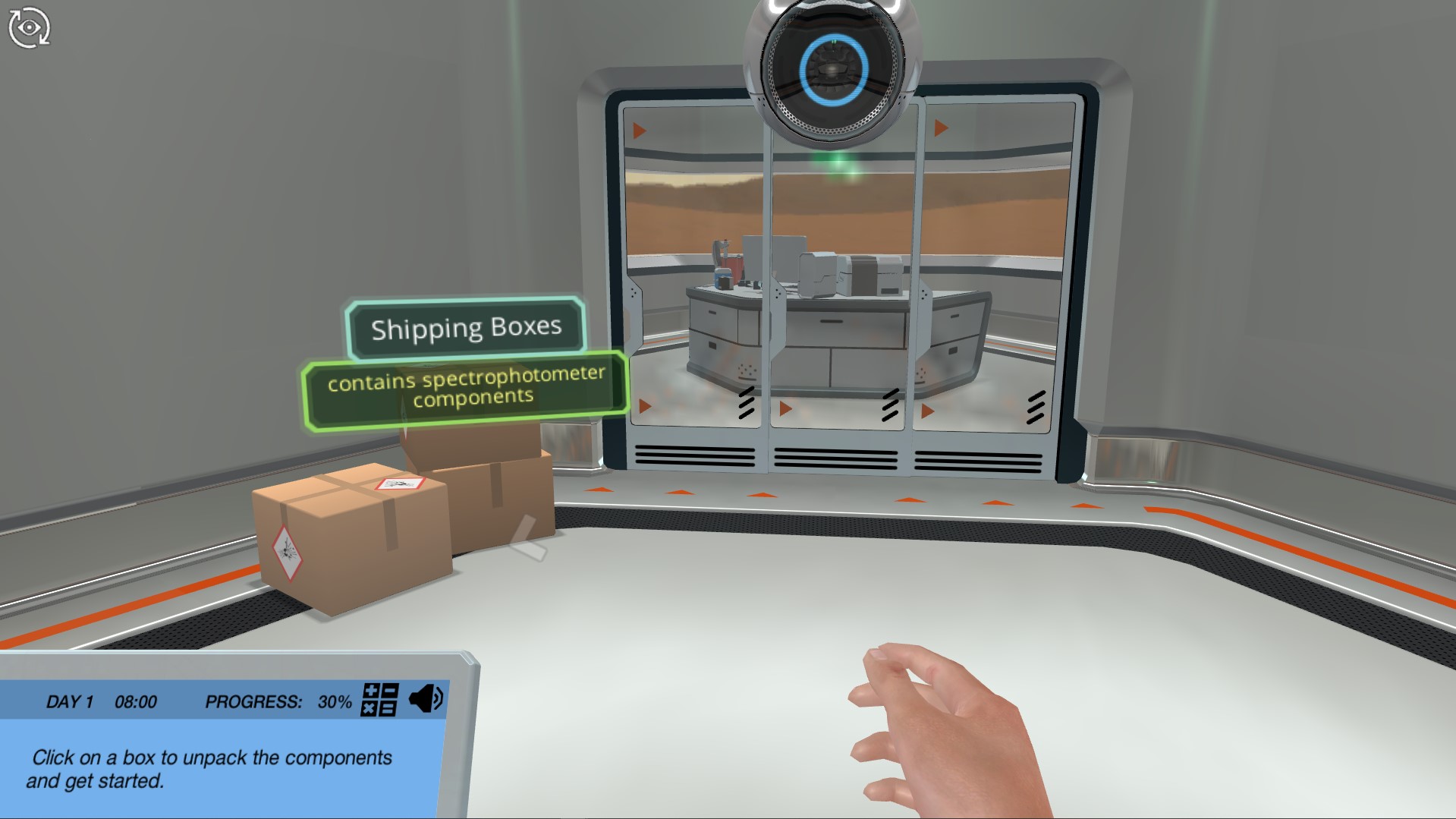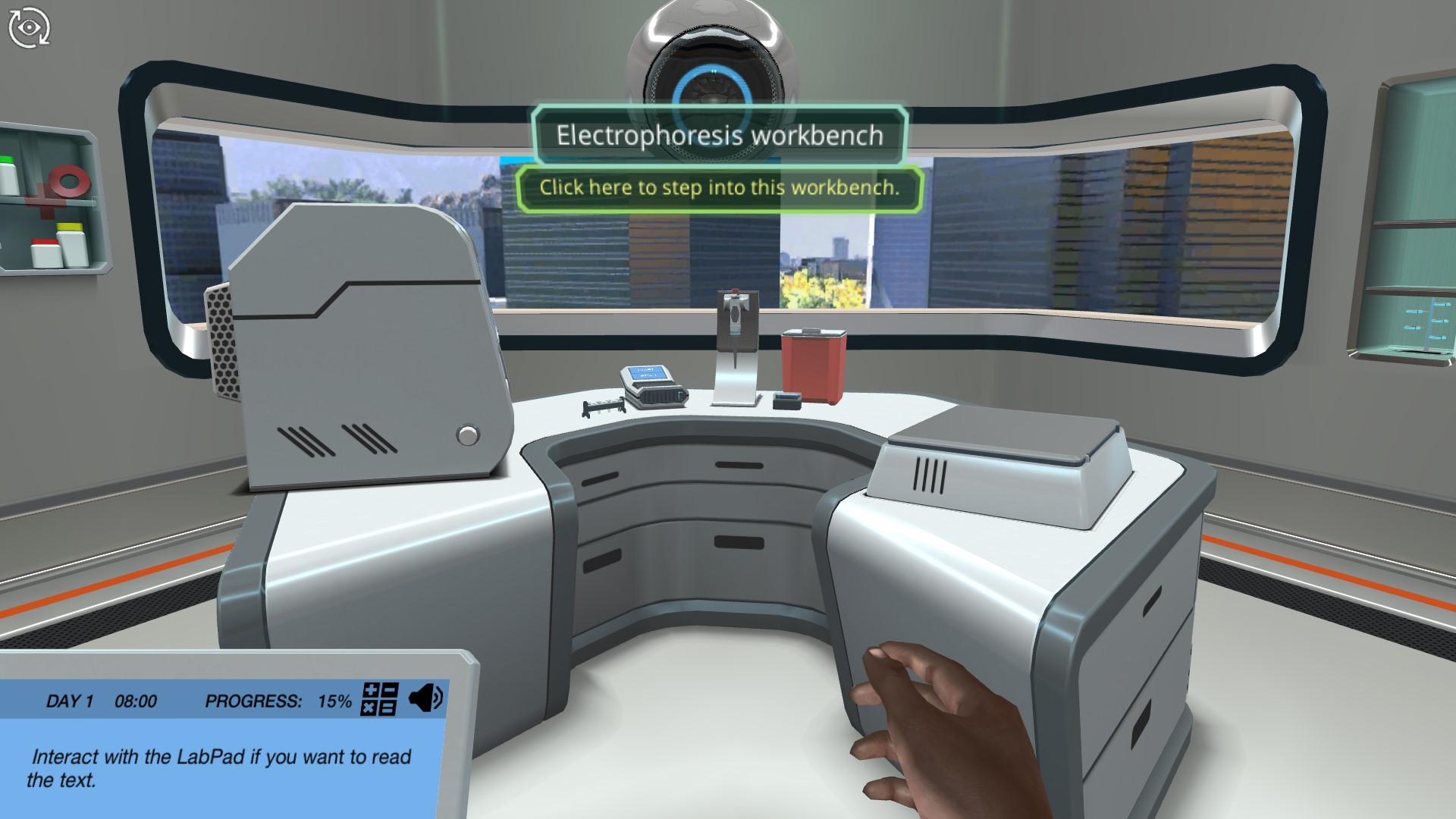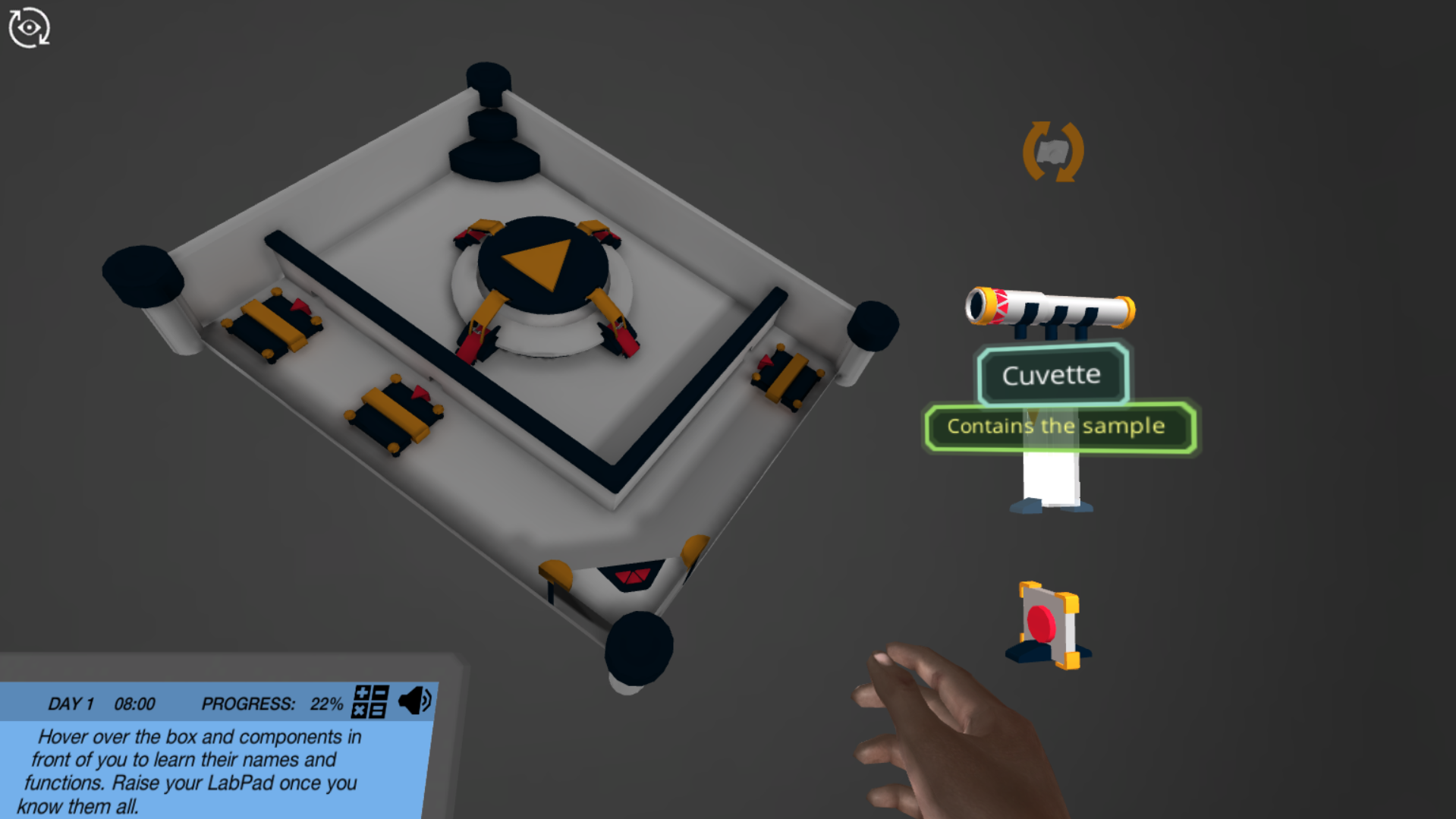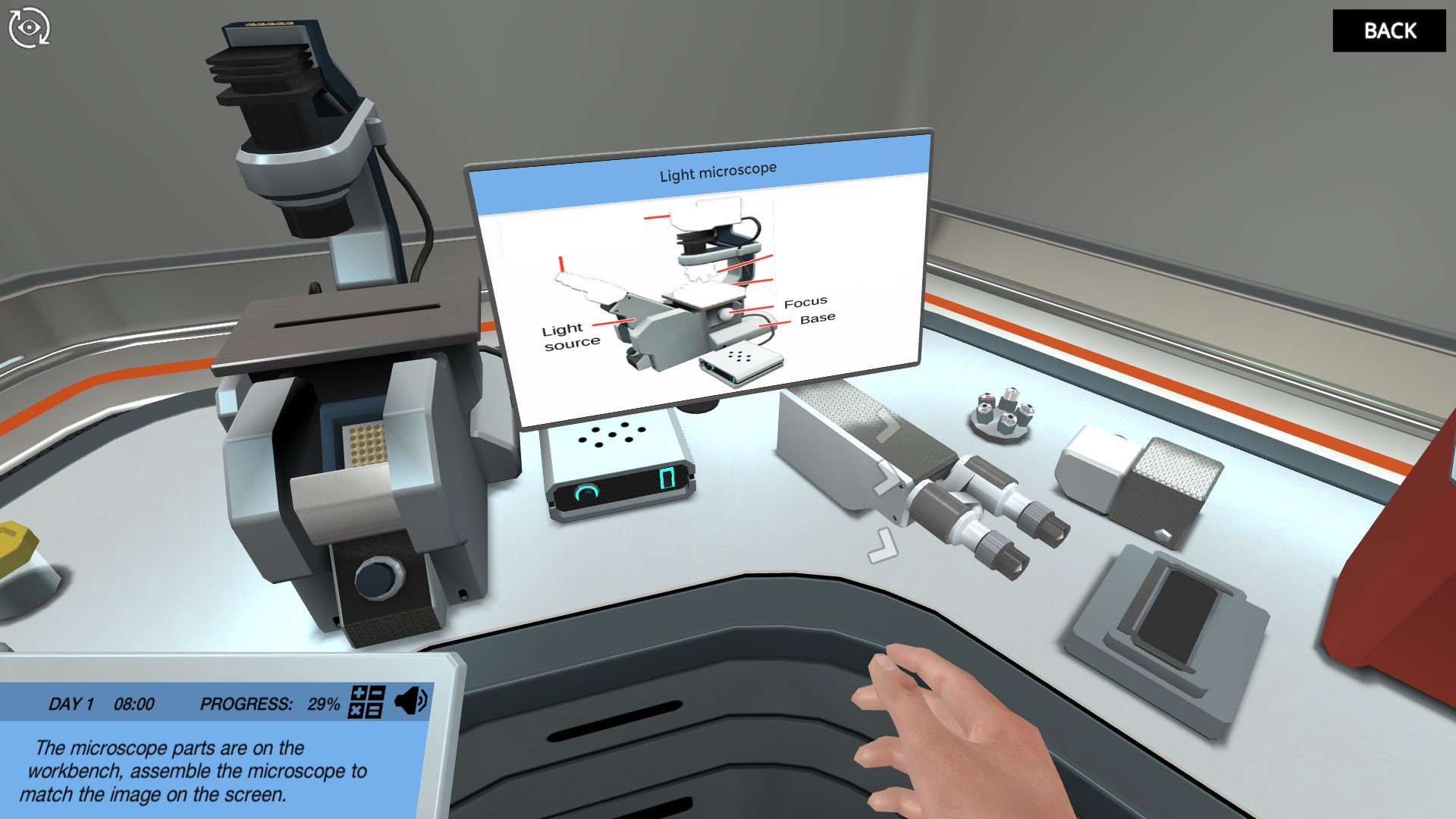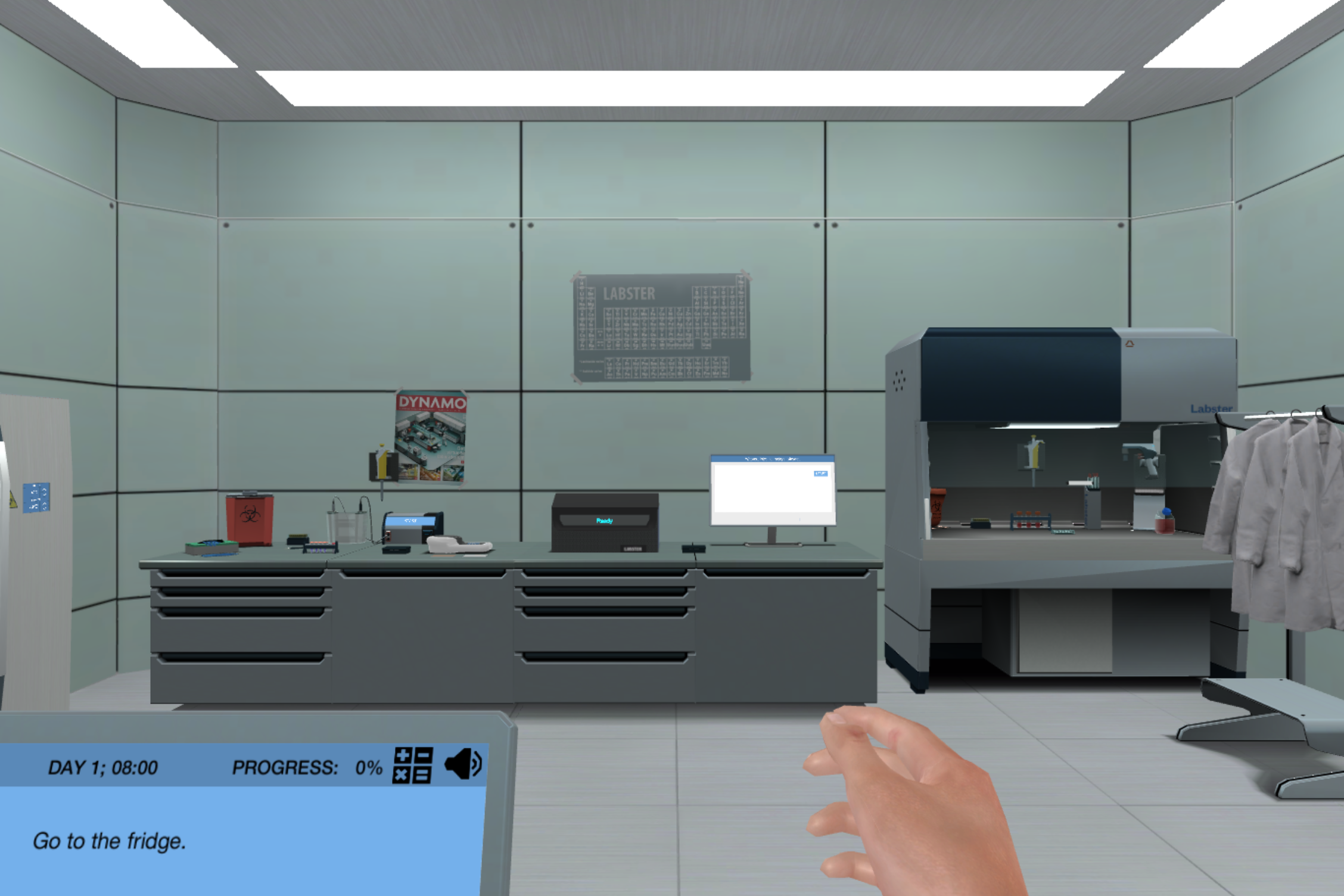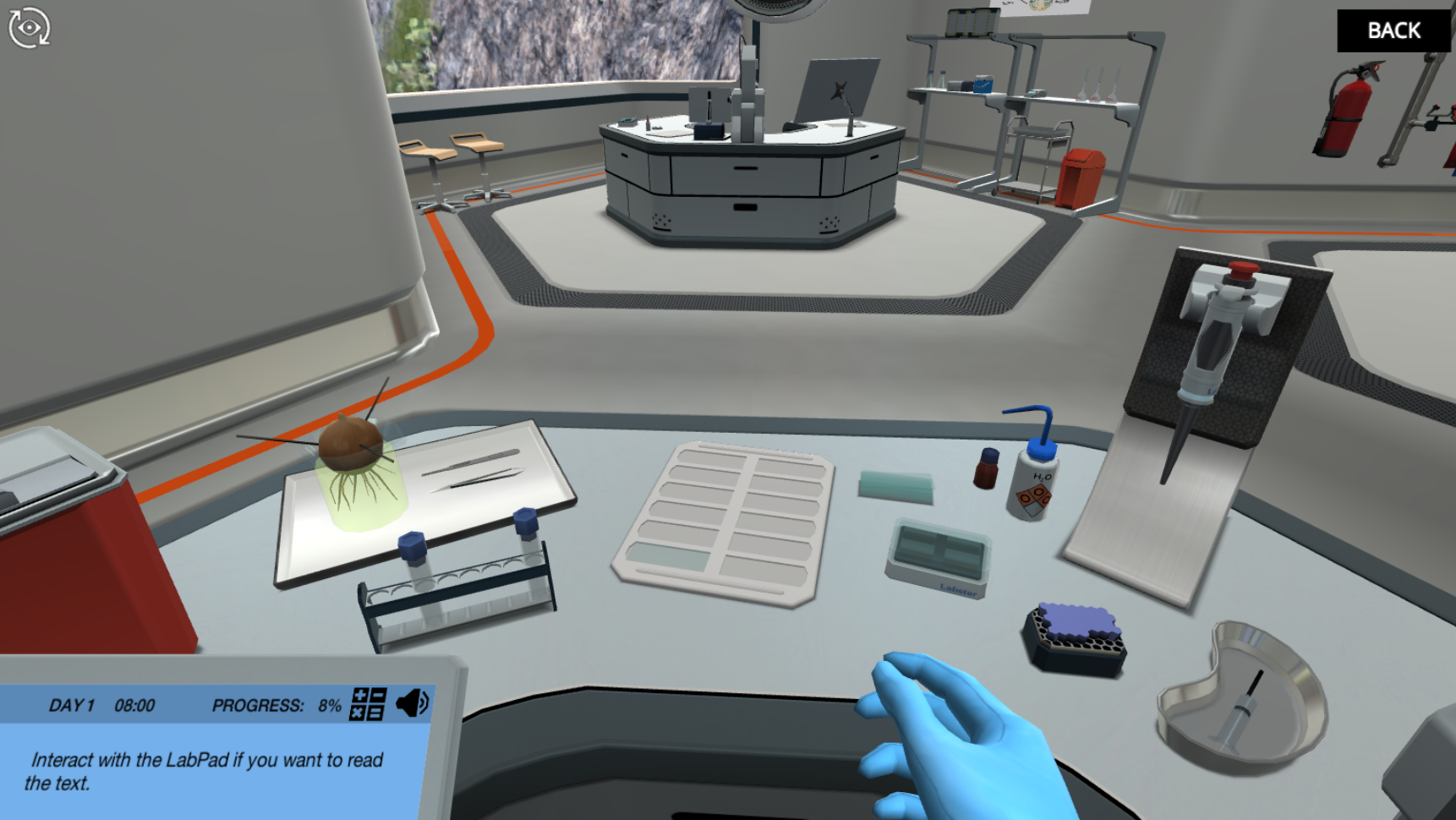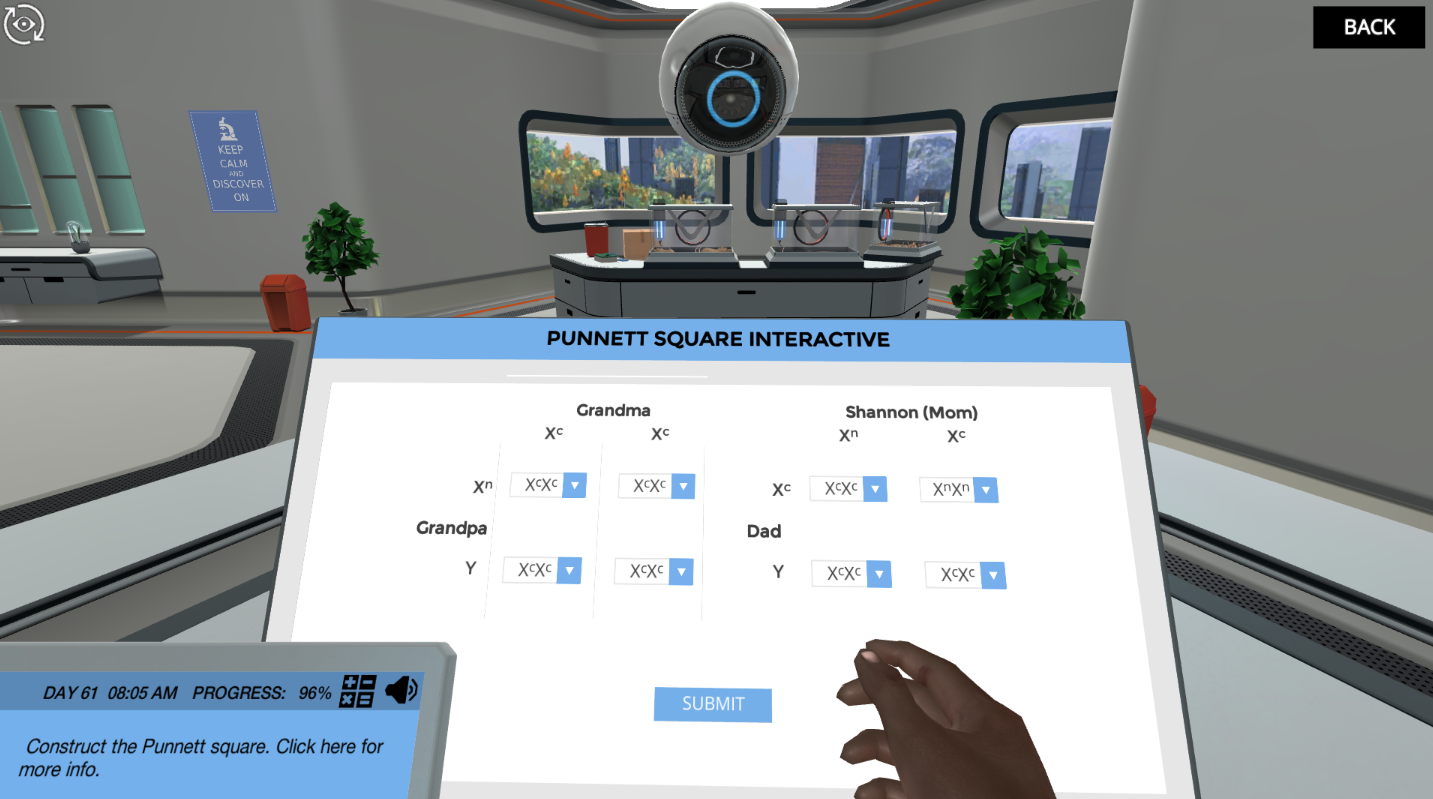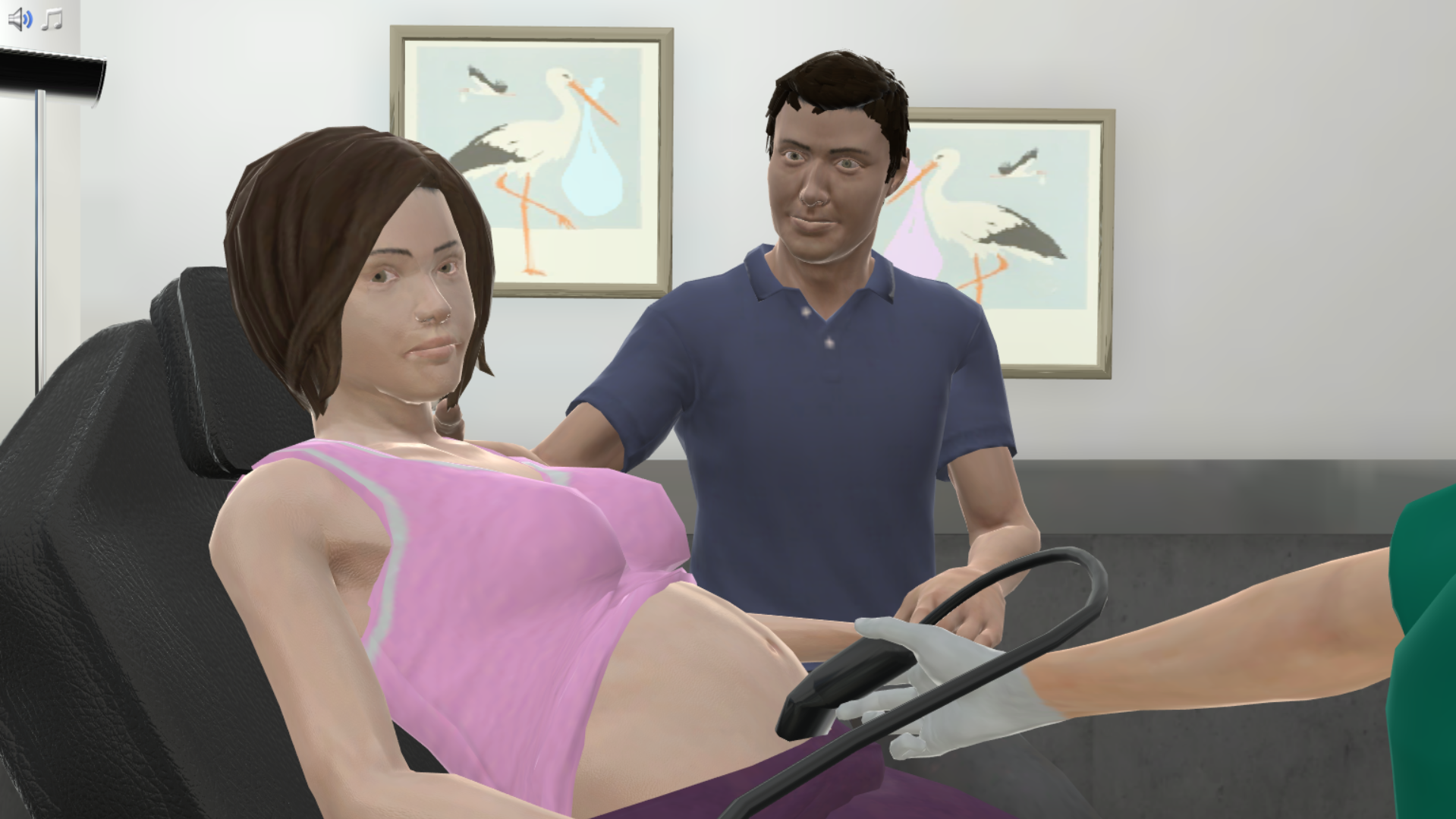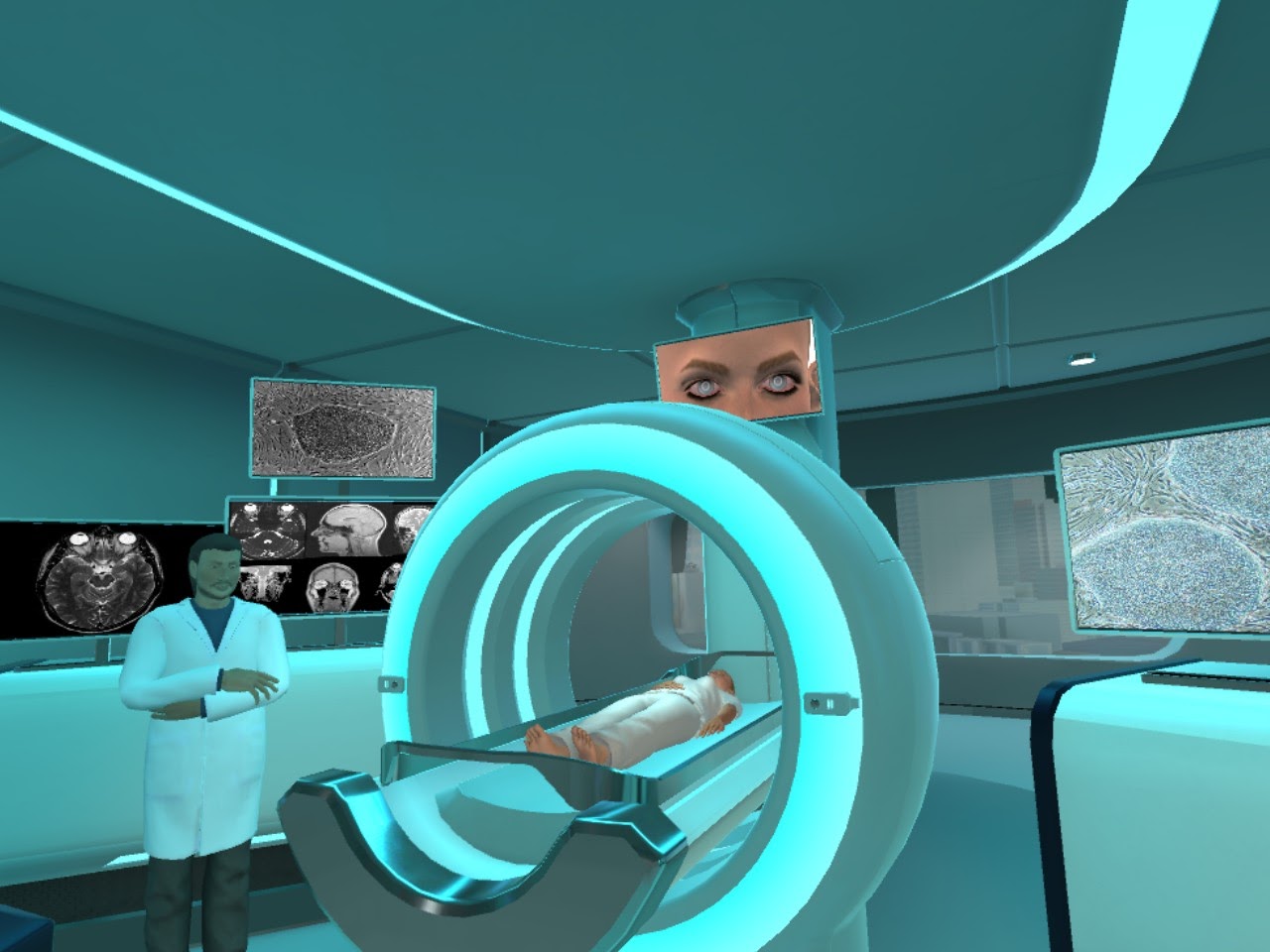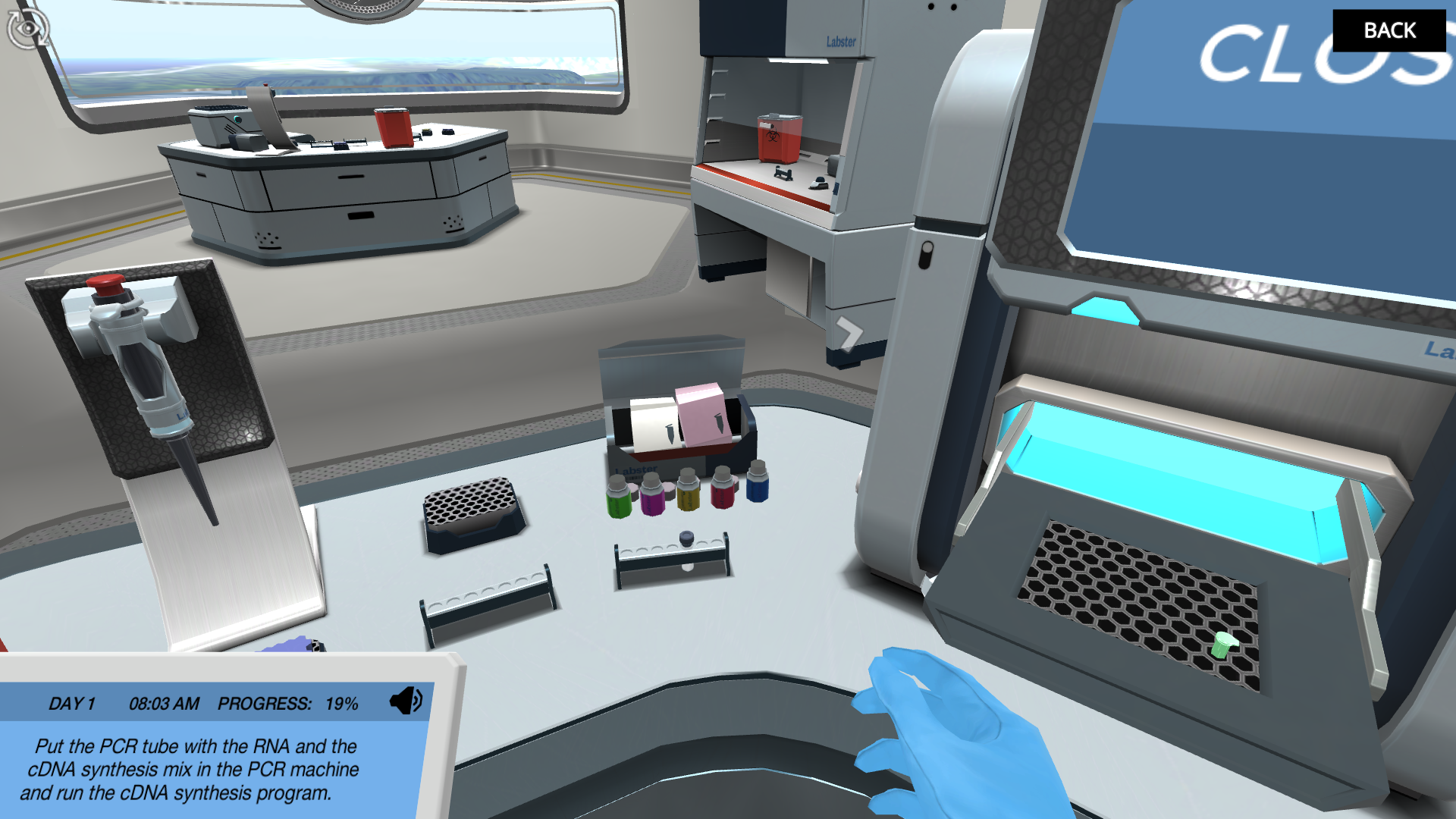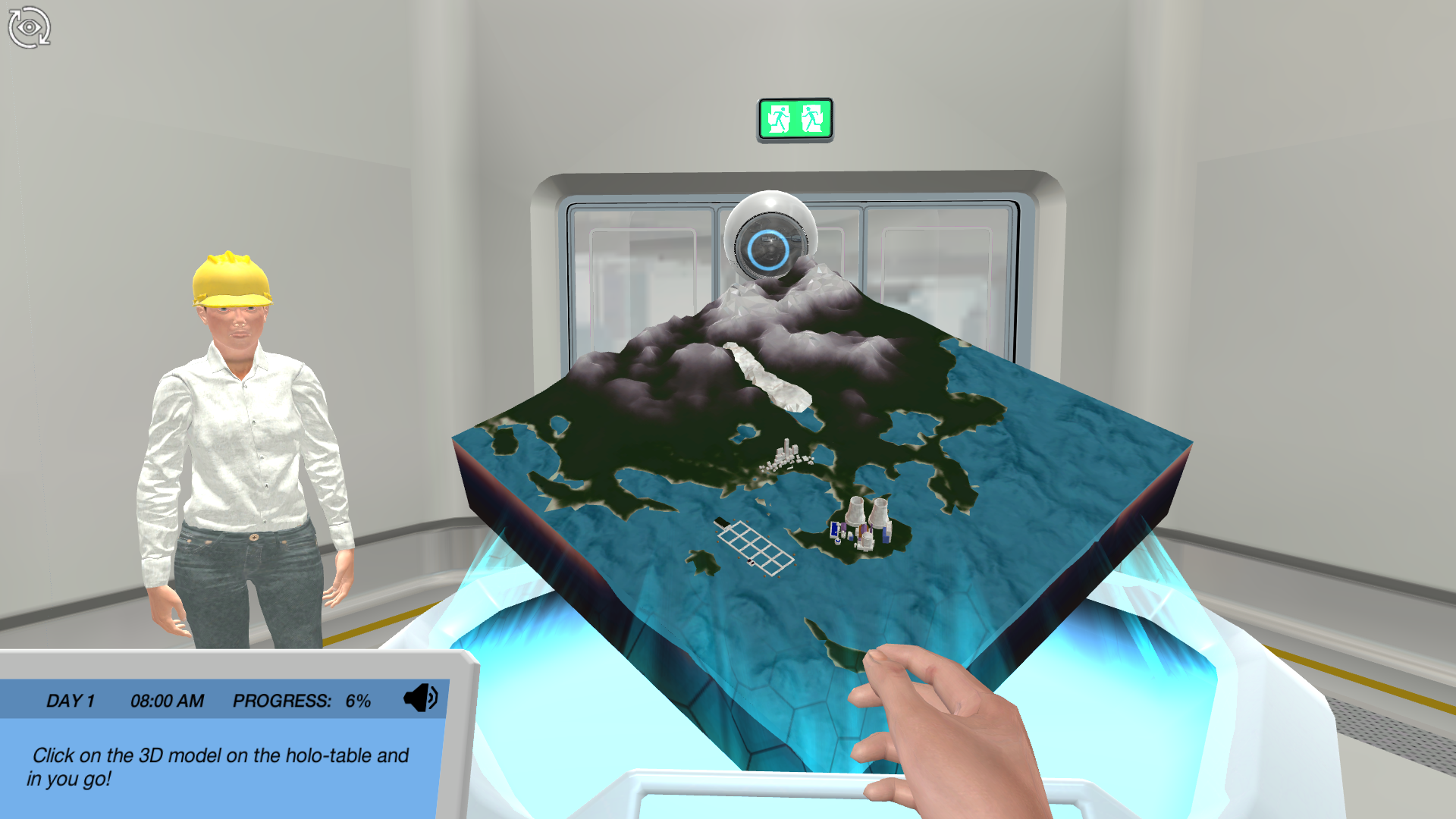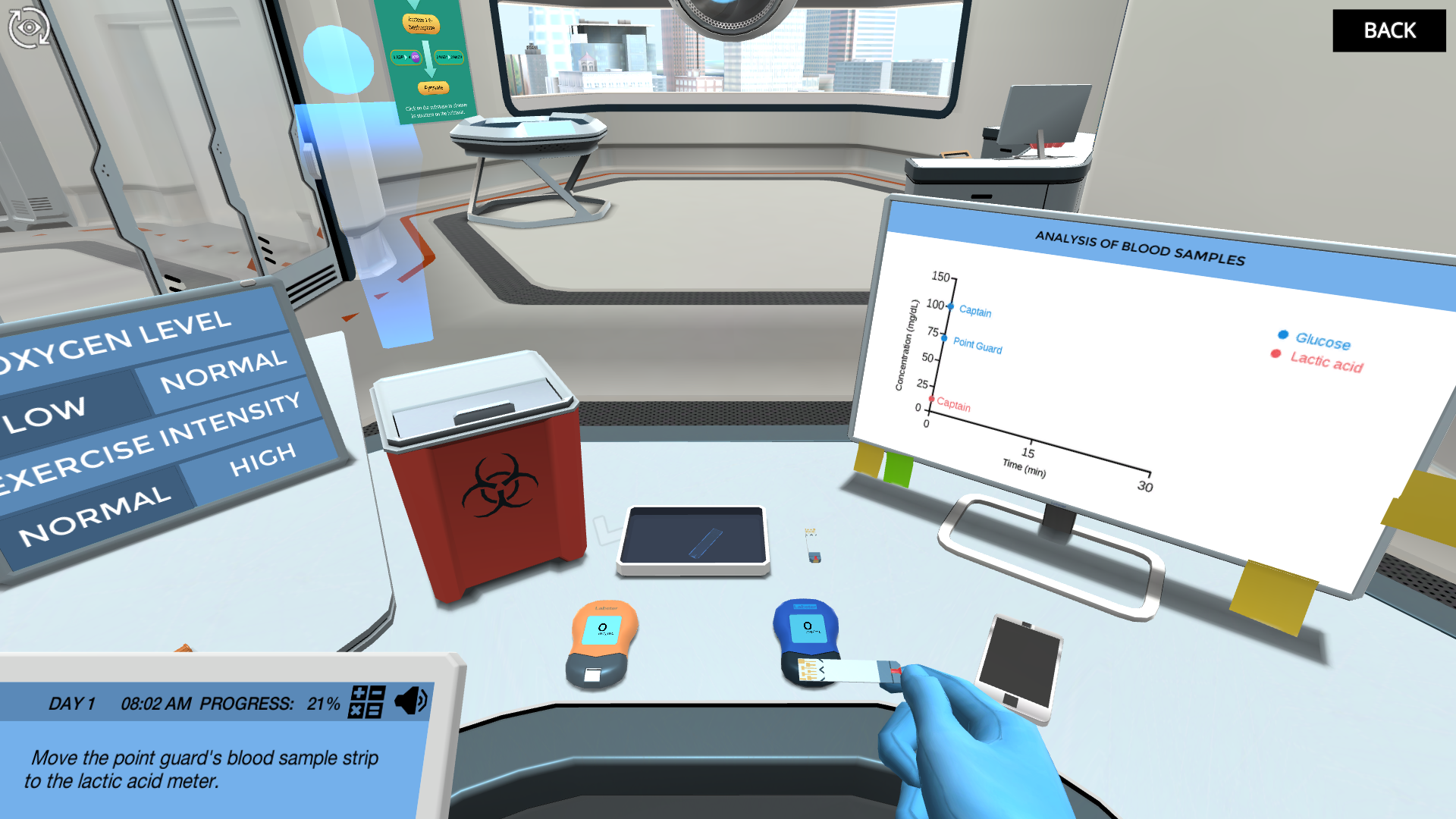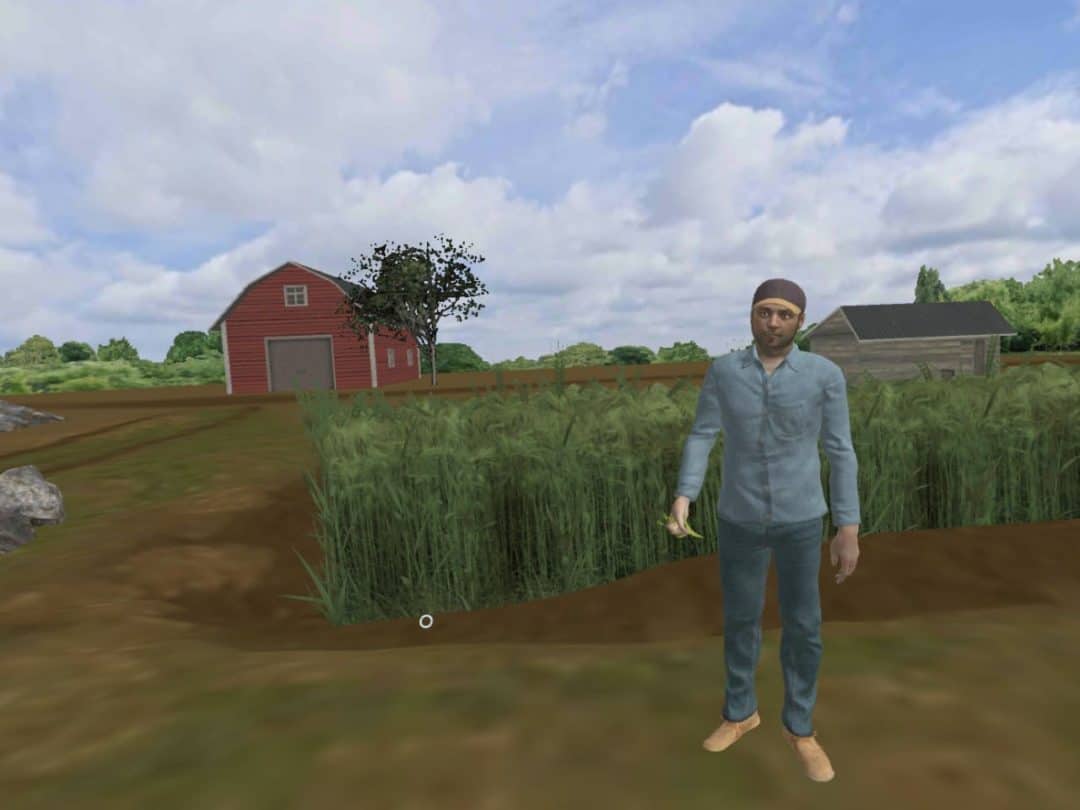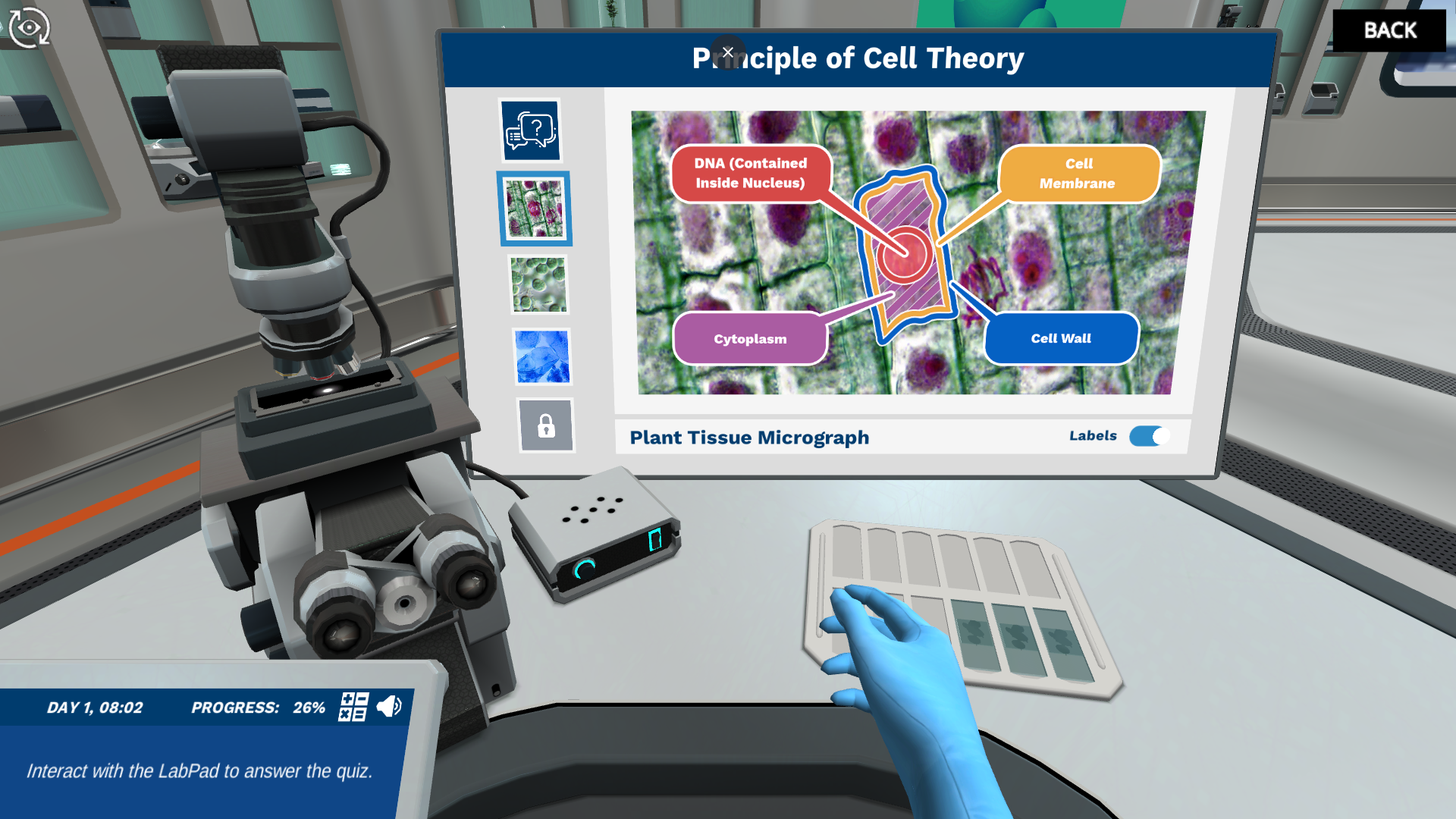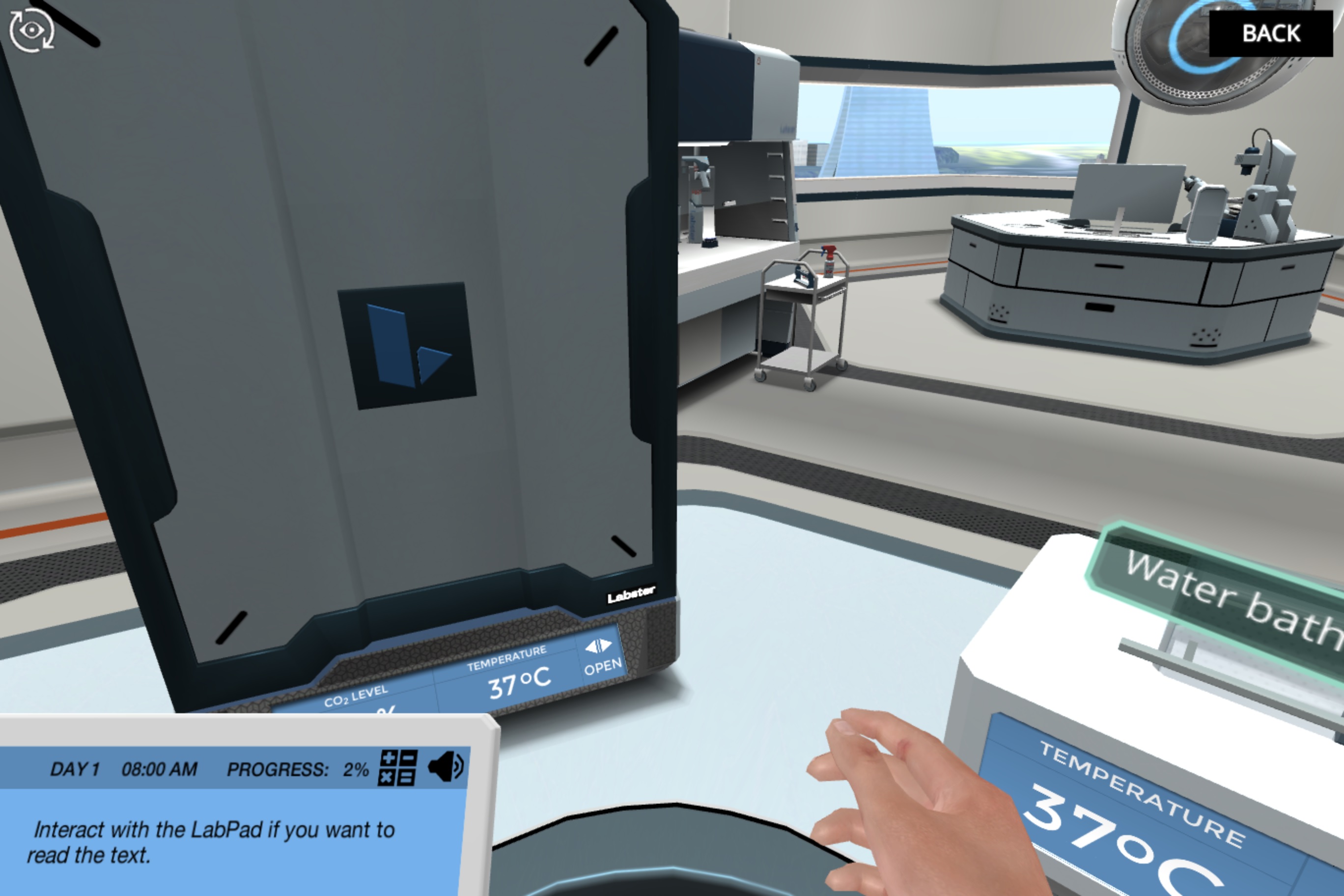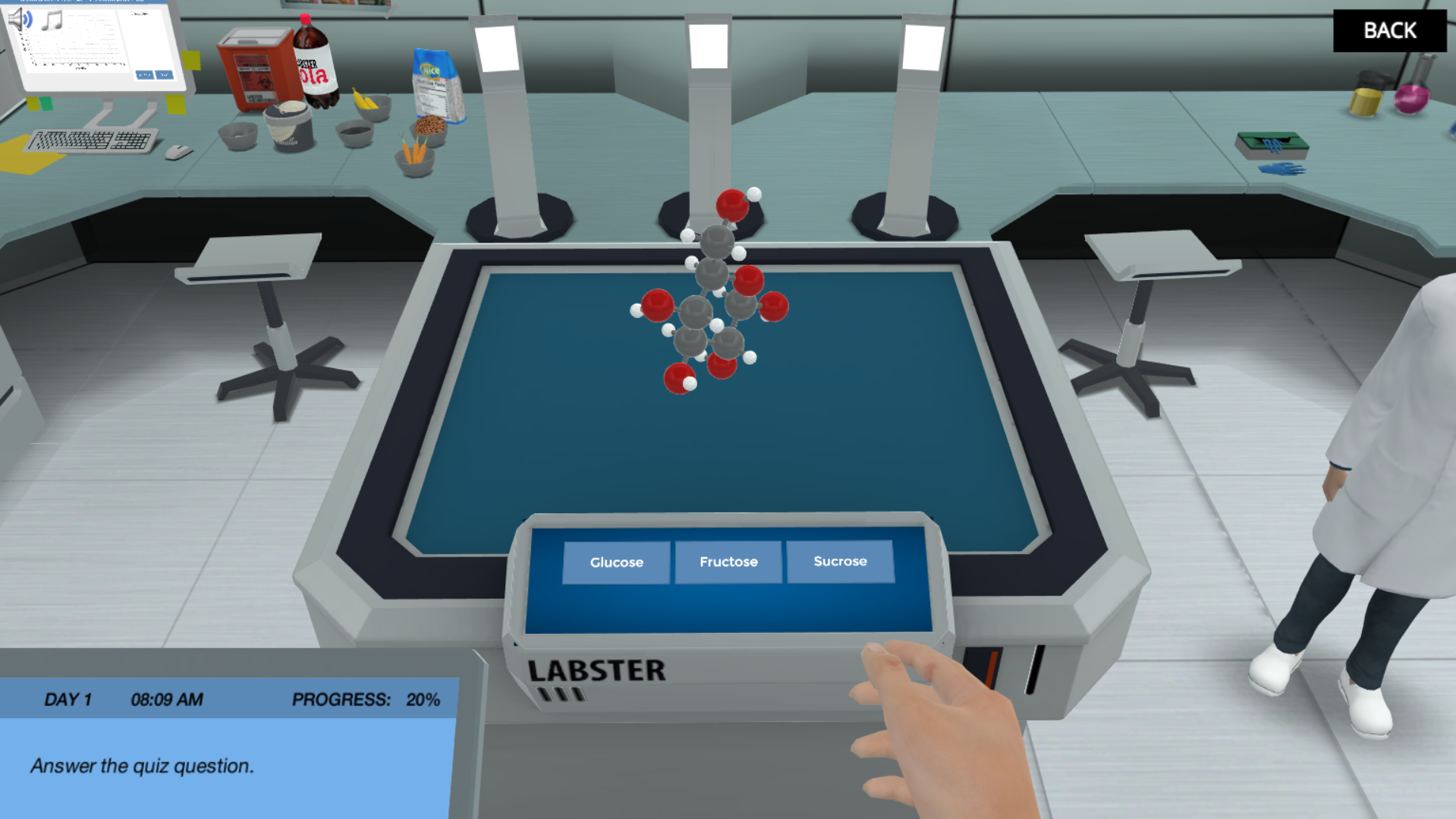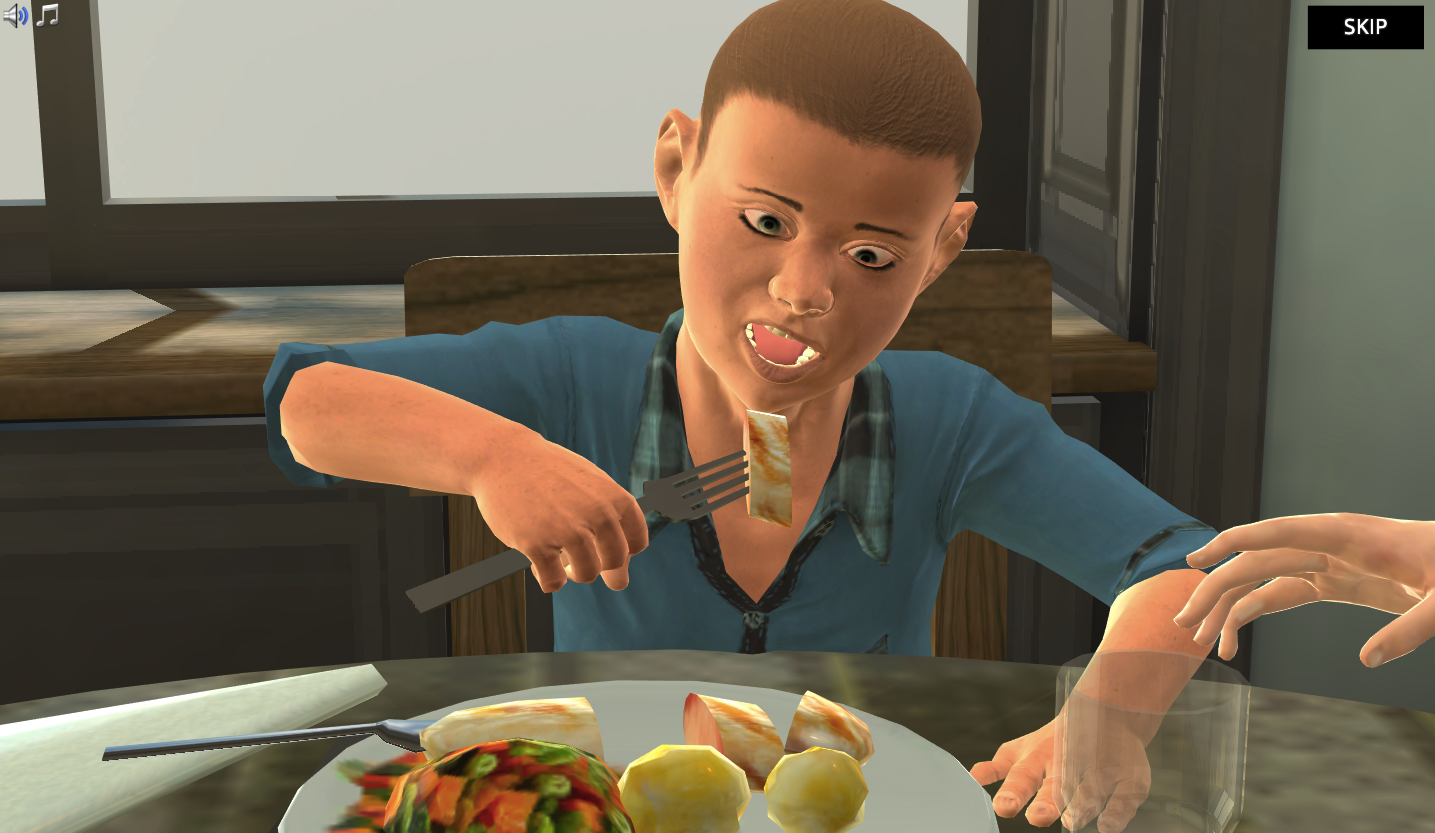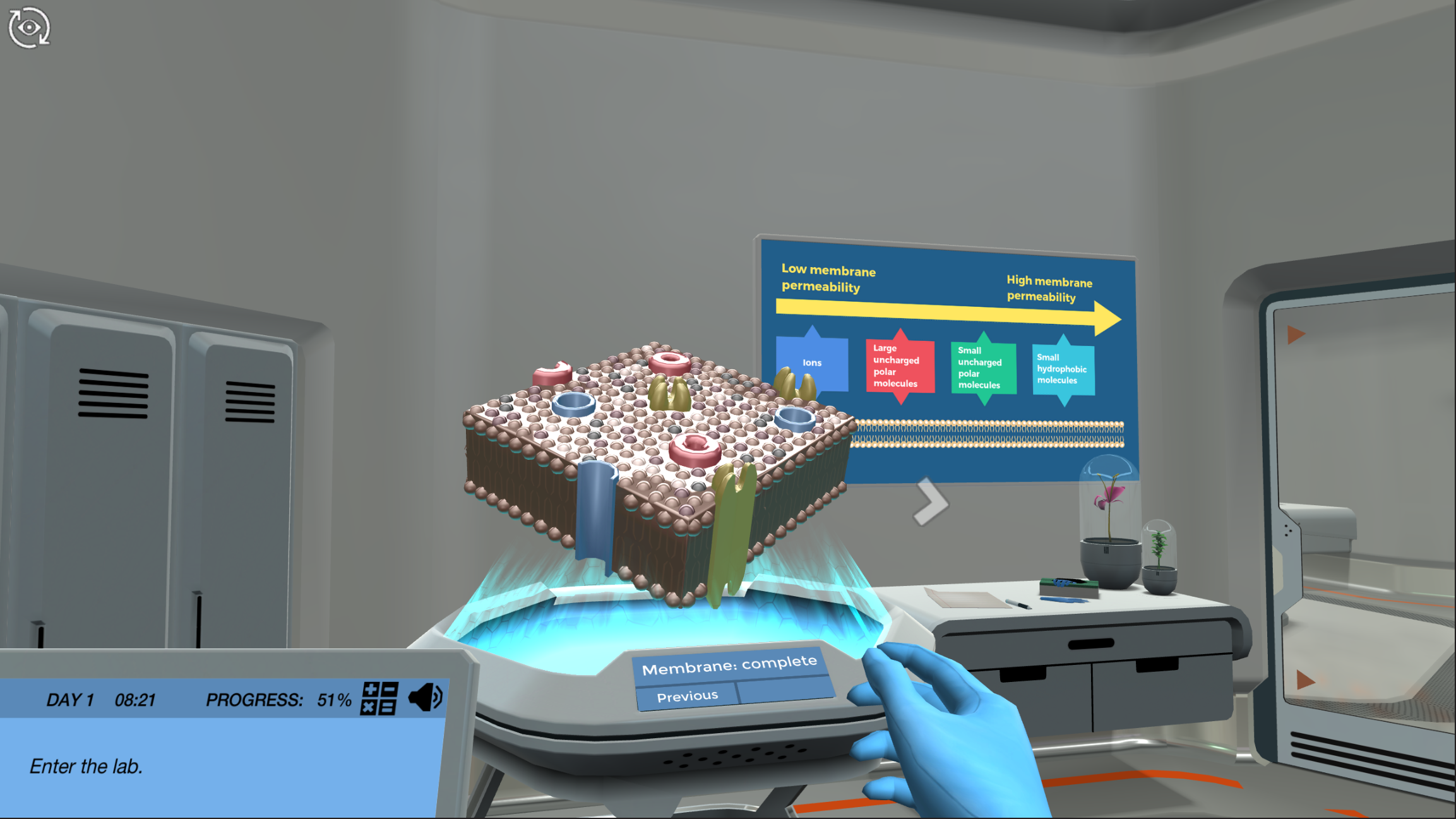Cellular and Molecular Biology
Collection Simulations
Blood Components: Dive into the microscopic world of blood cells!
Learn how to identify the key, physical characteristics of the blood components and understand their functions. Apply your knowledge to analyze patient’s blood samples and suggest possible diagnoses.
SDS-PAGE: Separating proteins by molecular weight
Investigate each step of SDS-PAGE from gel selection and sample preparation to chamber assembly and what really happens when the current turns on, to separate proteins solely by molecular weight, bringing us one step closer to identifying the protein.
Cancer: Impact of BRCA mutations
Investigate the principles of cancer development and cancer-related gene mutations to assess the risk of breast cancer development in a patient with a history of cancer in the family.
Protein Synthesis
Explore the structure of proteins and learn about the synthesis process inside the cells. Examine the protein sequence to understand the differences of protein synthesis in prokaryotes and eukaryotes.
Microscopy
Analyze the microscopic structure of the small intestine and learn the advantages and limitations of light, fluorescence and electron microscopy.
Osmosis and Diffusion: Choose the right solution for an intravenous drip
Help save Frank’s life by choosing the correct saline solution for an intravenous drip. Join Dr. One in the lab to discover what a hypotonic, isotonic and hypertonic solution is and how water is transported across the cell membrane in osmosis.
Introduction to Immunology: Organs and cells of the immune system
The immune system is a complex structure of cells, tissues and organs that work together to protect our bodies from infection. Dive into the complex structures and functions of those organs and cells that protect us from various pathogens every day!
Immunology: Immunoassay for detecting SARS-CoV-2 antibodies
Investigating antibody production patterns in populations helps us understand how diseases like COVID-19 spread. Conduct immunoassays to detect blood serum IgG and IgM to discover the vaccination and infection status of a community exposed to SARS-CoV-2.
Gene linkage and pedigree analyses
Put yourself in the place of a genetic counselor and find out if the daughter of a breast cancer patient is at a higher risk of developing breast cancer herself. Help her by constructing a pedigree and finding the defective gene by using linkage analysis.
Western Blot Transfer: Prepare for protein detection
Join Dr. One and two colleagues on their mission to cure cancer. They are using Western blot to compare the level of p53 protein in cancerous and healthy control cells. Can you help Dr. One with the tricky membrane transfer step?
Cellular Respiration: Respirometry
Observe how we can monitor and better understand respiration by a method known as Respirometry. Learn the effects of exercise of respiration by observing glucose levels and oxygen consumption through a model organism: a mouse.
Cellular Respiration: The Electron Transport Chain
Take dive inside a mitochondrion to learn all about the electron transport chain (ETC) and pass on your findings to the basketball team so they can learn too!
Cellular Respiration: The Krebs Cycle
Help a basketball team learn about what happens in the second stage of cellular respiration, the Krebs cycle, to help them improve their longevity in the game!
Cellular Respiration: Glycolysis
Help the basketball players understand how the food they eat gets converted to energy by investigating glycolysis, the first stage of cellular respiration.
Chemistry Safety: Hazard symbols
Join lab assistant Marie to find out how to decide on the correct laboratory practice and personal protective equipment when dealing with hazardous chemicals. Learn the meaning of the hazard symbols and apply your knowledge with some example chemicals.
Meiosis: How is color blindness inherited?
Investigate the principles of Mendelian inheritance and discover how color blindness is inherited by observing chromosomal rearrangement in an animation.
Inheritance with Punnett Squares
Investigate the principles of inheritance and help a family determine whether future generations will inherit color blindness.
Inheritance with Pedigrees
Investigate the principles of inheritance and draw a pedigree tree to understand how color blindness is inherited.
Spectrophotometers: Building and exploring the instrument
Build your own spectrophotometer to discover how you can measure substances with light
Gel Electrophoresis: Visualize and separate nucleic acids
Solve a crime by using DNA fingerprinting to identify a thief. Use nucleic acid gel electrophoresis to separate and visualize DNA molecules and watch an animation to understand what happens inside the gel tank.
Spectrophotometry: Learn the Beer-Lambert law with absorbance experiments
Build your own spectrophotometer to measure the absorbance of a reaction product on Mars!
Fluorescence Microscopy
Enter the virtual microscope room to see inside a tissue sample. Learn how a fluorescence microscope can create a high contrast image and answer biological questions.
Light Microscopy
Enter the virtual microscope room to see inside a tissue sample. Learn how a light microscope can magnify an image and answer biological questions.
Signal Transduction: Choose the best cancer inhibitor
Investigate the connection between blood vessel growth and cancer development. Use this knowledge to help the pharma company in their quest to uncover promising drug candidates to treat breast cancer patients.
Mitosis: Using a toxic compound from the yew tree in cancer therapy
Join a cell biology research group to find out how a poisonous compound from a yew tree can be used in cancer therapy. You will be immersed in an animation of a human cell and use light and fluorescence microscopy to study cell division.
Mendelian Inheritance: From genes to traits
Investigate the principles of Mendelian inheritance and help a patient determine if his future children will inherit his color-blindness.
Meiosis: Understand how traits are inherited
Follow a couple as they go through IVF treatment in order to have a baby. Understand how traits are inherited from one generation to the next and how cell division plays an important role in forming, growing and repairing the human body.
Gene Regulation
Open your eyes to the vast potential of gene regulation, where you can reprogram cells into any cell that fits your needs. Will you able to help the doctor in restoring the sight of a visually impaired girl?
Gene Expression Unit: Use sequencing to unveil a gene linked to obesity
Discover Next Generation Sequencing by analyzing the mRNA from pig tissues and identify a new gene linked to obesity. Confirm your results using qPCR to analyze the expression levels of your gene!
Electron Transport Chain: A rollercoaster ride that produces energy
Help a group of engineers figure out if a mysterious dark alga is able to do photosynthesis using green light and measure this process with the Hill reaction. If it is, your work will help create a sustainable plan that will use sunlight and pollution sources for biofuel production.
Cellular Respiration: Measuring energy consumption during exercise
Help basketball players understand how the food they eat gets converted to energy through glycolysis, the Krebs cycle and the electron transport chain. Use a mouse model to experiment on the effect of exercise intensity on oxygen and glucose consumption.
Confocal Microscopy
Join this virtual confocal microscopy lab and learn how to take pin-sharp confocal micrographs and 3D renderings. Use the knowledge to save your uncle’s crop from a mysterious plant disease.
Cell Structure: Cell theory and internal organelles
Explore different cell samples under the microscope to identify the differences between eukaryotes and prokaryotes. Build the structure of an animal cell and choose the internal organelles of four specialized cells.
Cell Culture Basics: Plate, split and freeze human cells
Find out what it’s like to work in a cell culture laboratory. Learn how to use the aseptic technique to avoid contamination of your cells, and discover what it takes to keep them alive.
Carbohydrates: The sugars that feed us
The Carbohydrates Lab explores how carbohydrates are broken down by the digestive system and taken up into the bloodstream.
Bacterial Isolation
Learn about the proper techniques of isolating single colonies from a culture sample, how to use aseptic techniques and how to perform plate streaking.
Cell Membrane and Transport: Learn how transporters keep cells healthy
Discover the structure and function of cell membranes by launching cargo molecules at a virtual cell. Apply your learning back in the lab to improve the health of synthetic cells that the lead researcher wants to use to produce insulin.
Boost STEM Pass Rates
Boost Learning with Fun
75% of students show high engagement and improved grades with Labster
Discover Simulations That Match Your Syllabus
Easily bolster your learning objectives with relevant, interactive content
Place Students in the Shoes of Real Scientists
Practice a lab procedure or visualize theory through narrative-driven scenarios
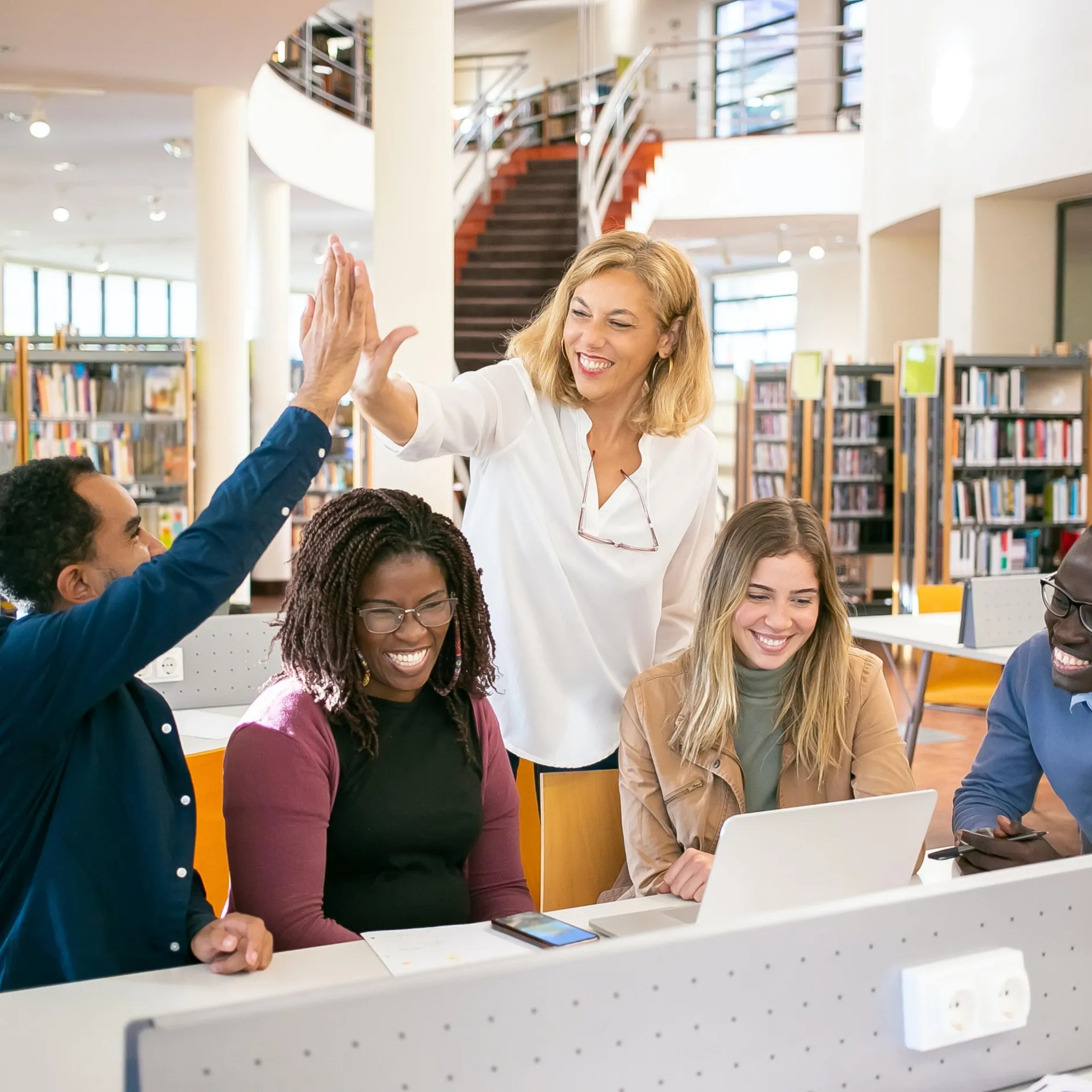


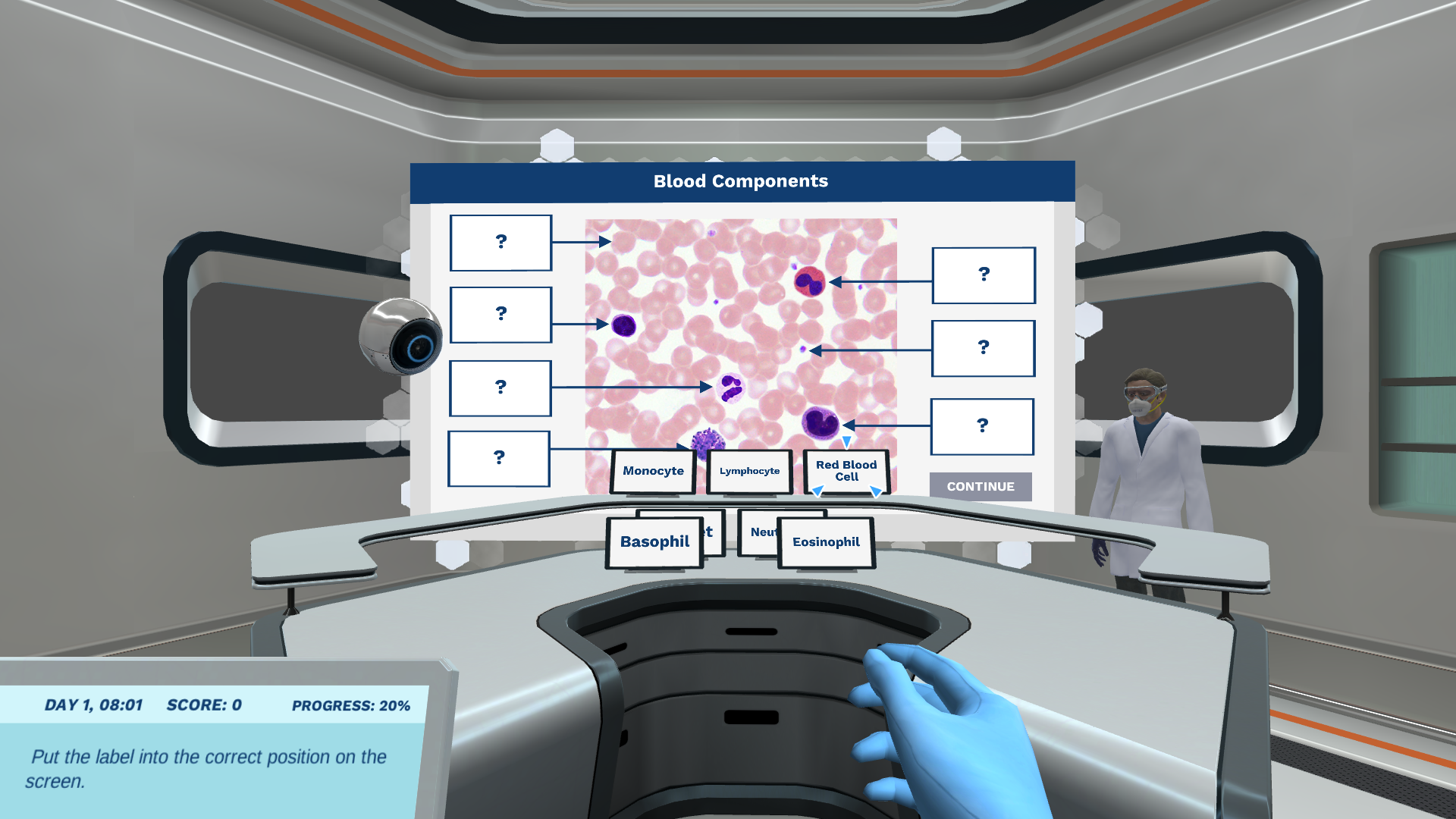
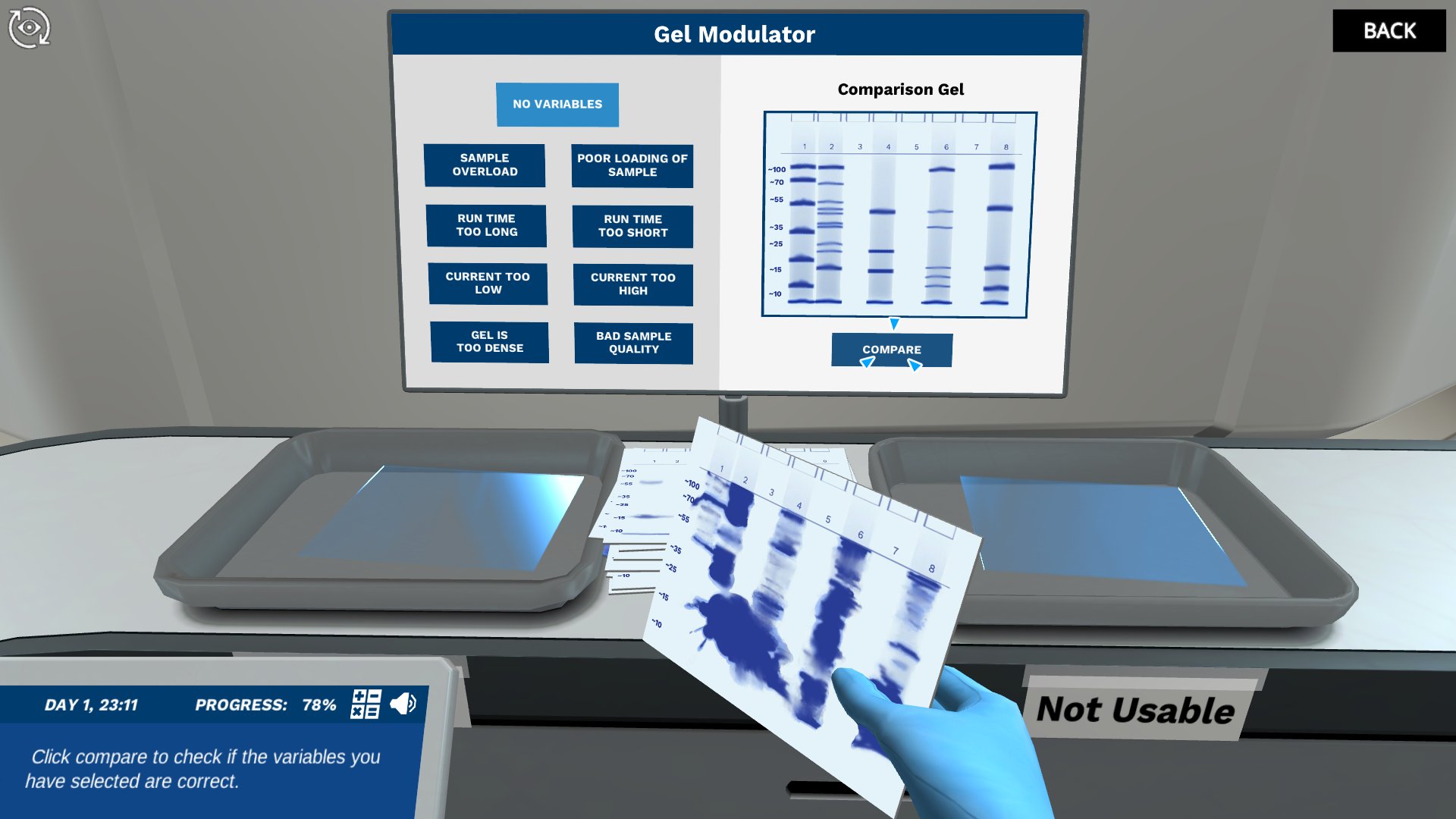
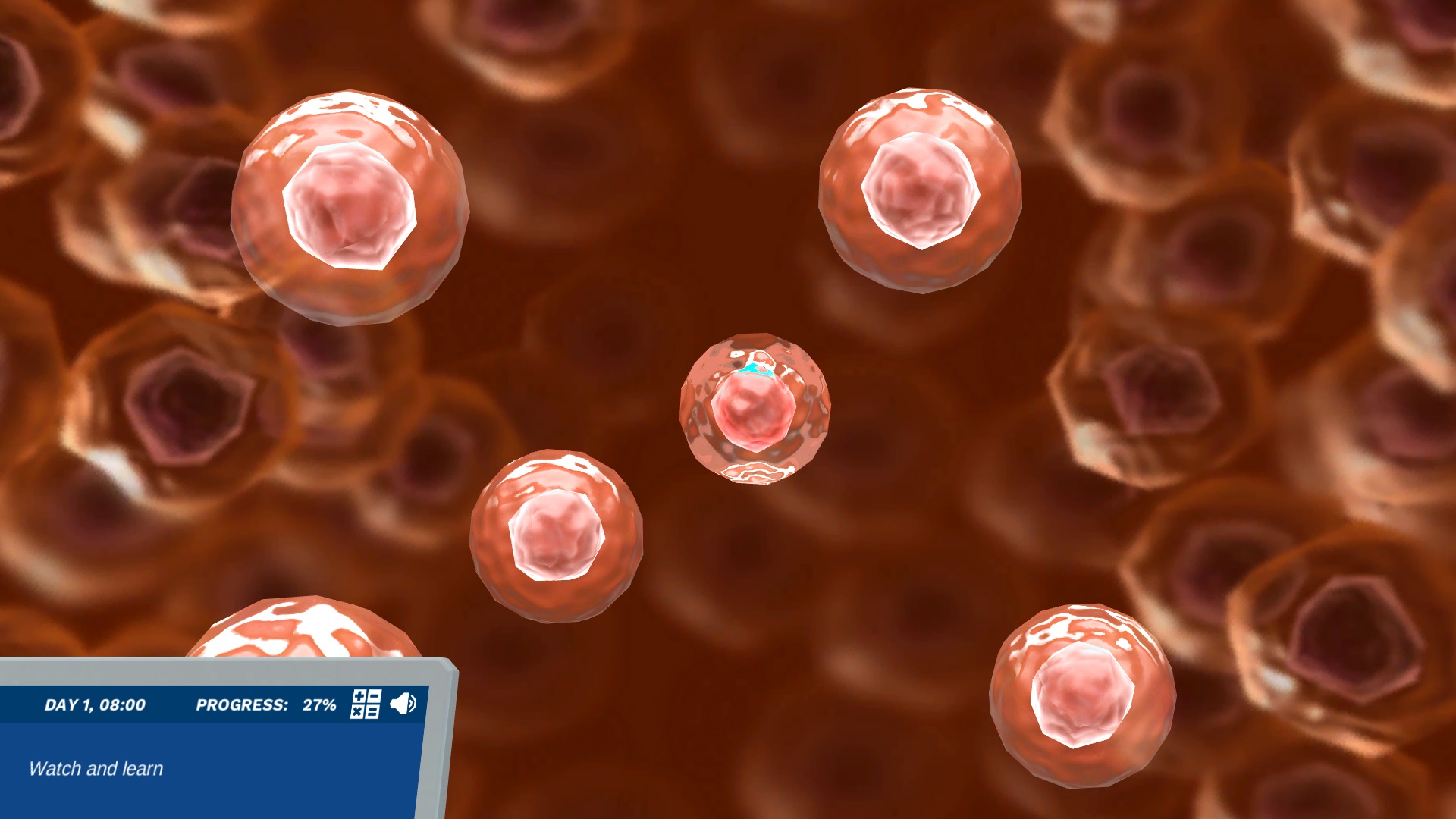
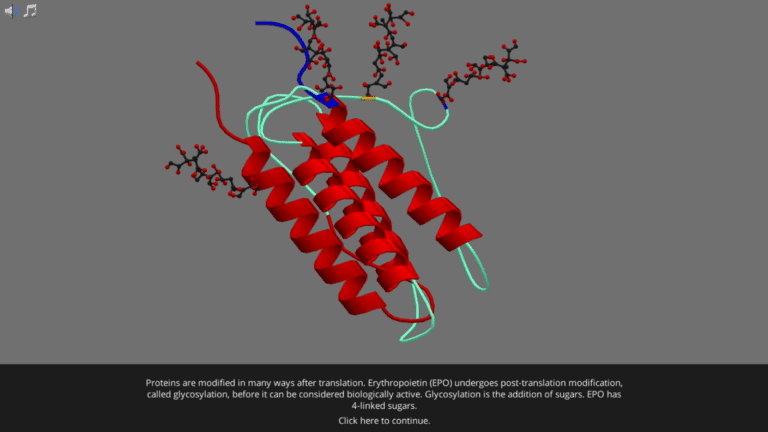
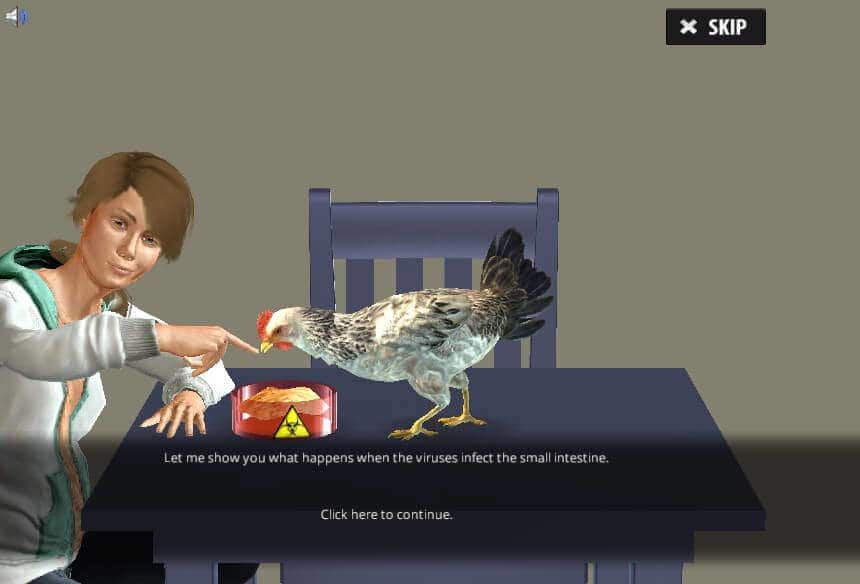
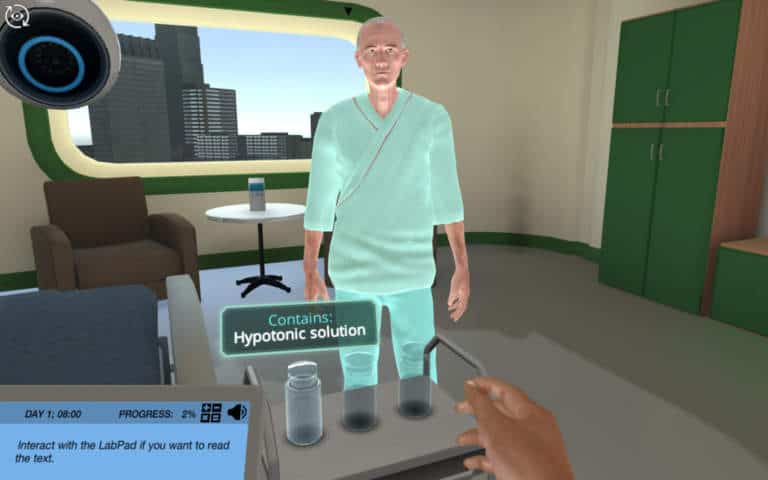
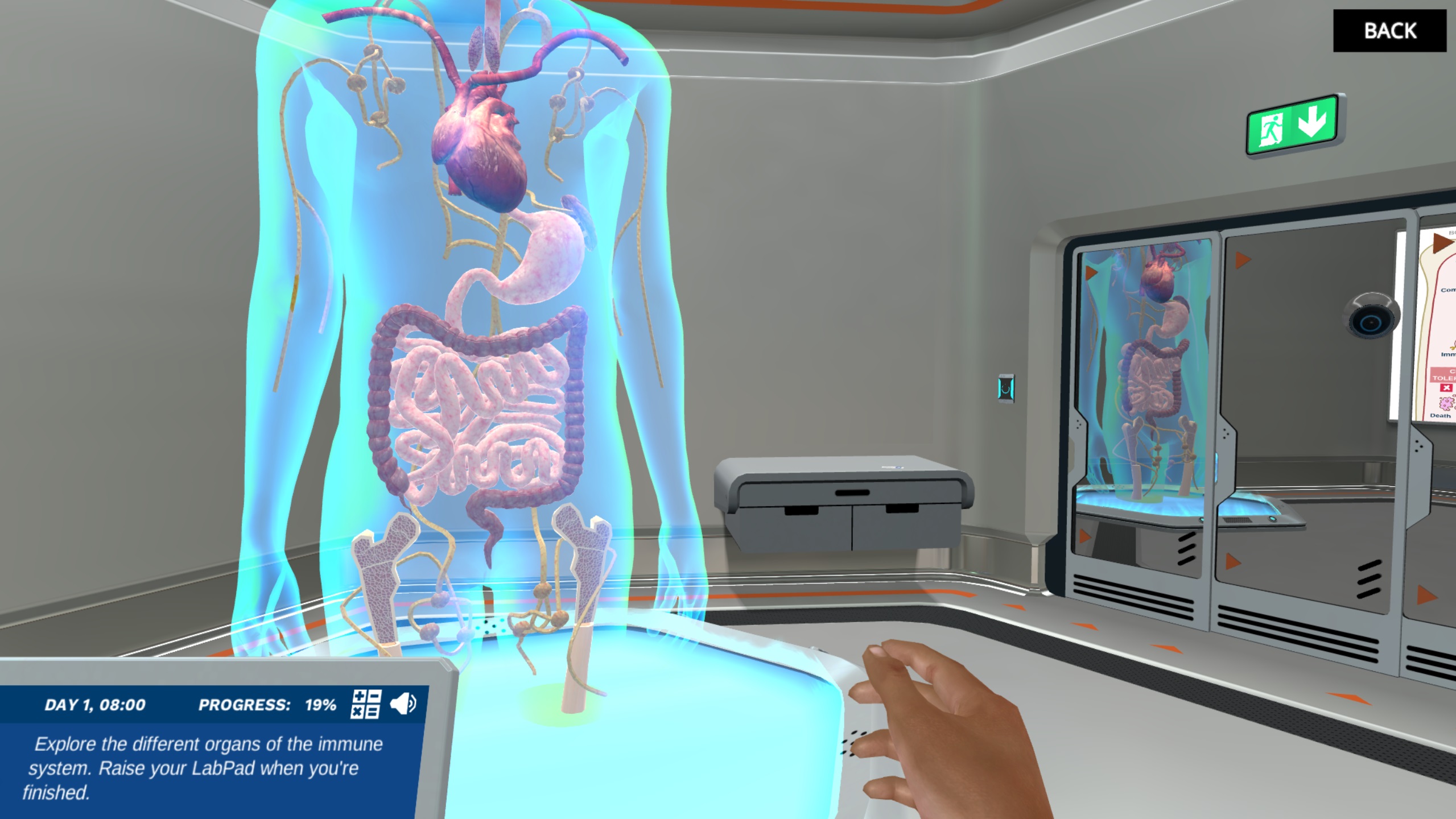
.JPG)
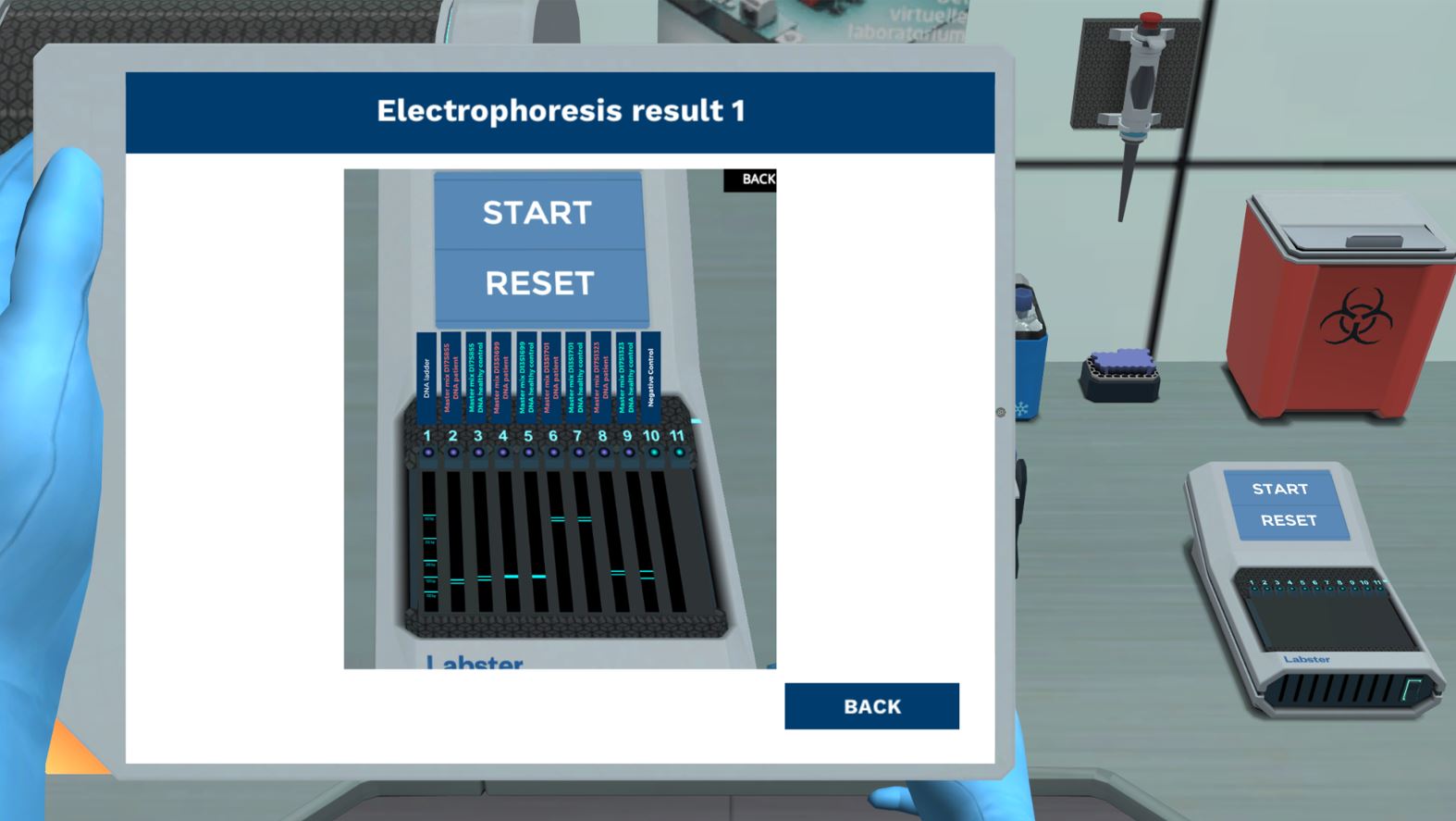
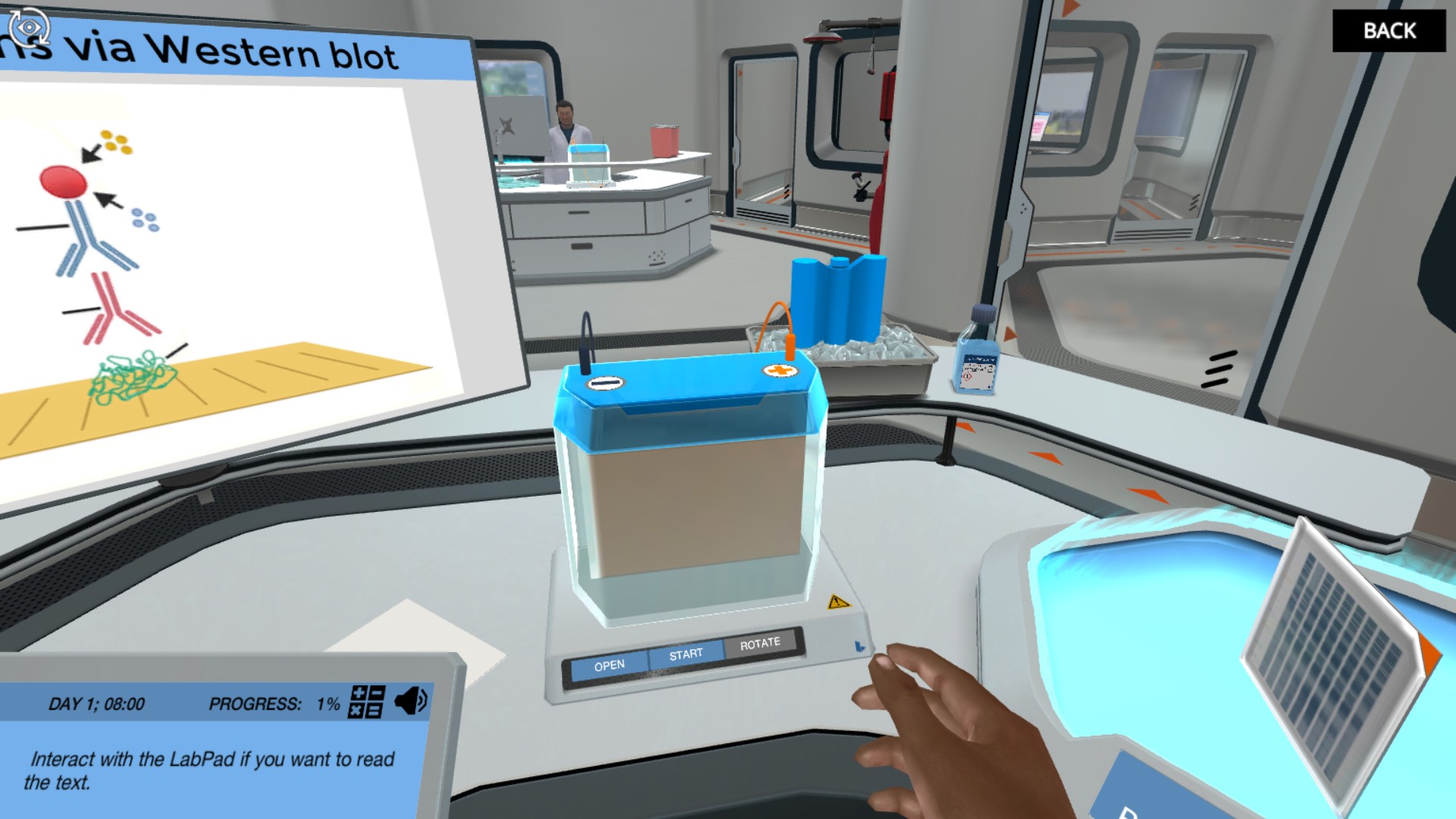
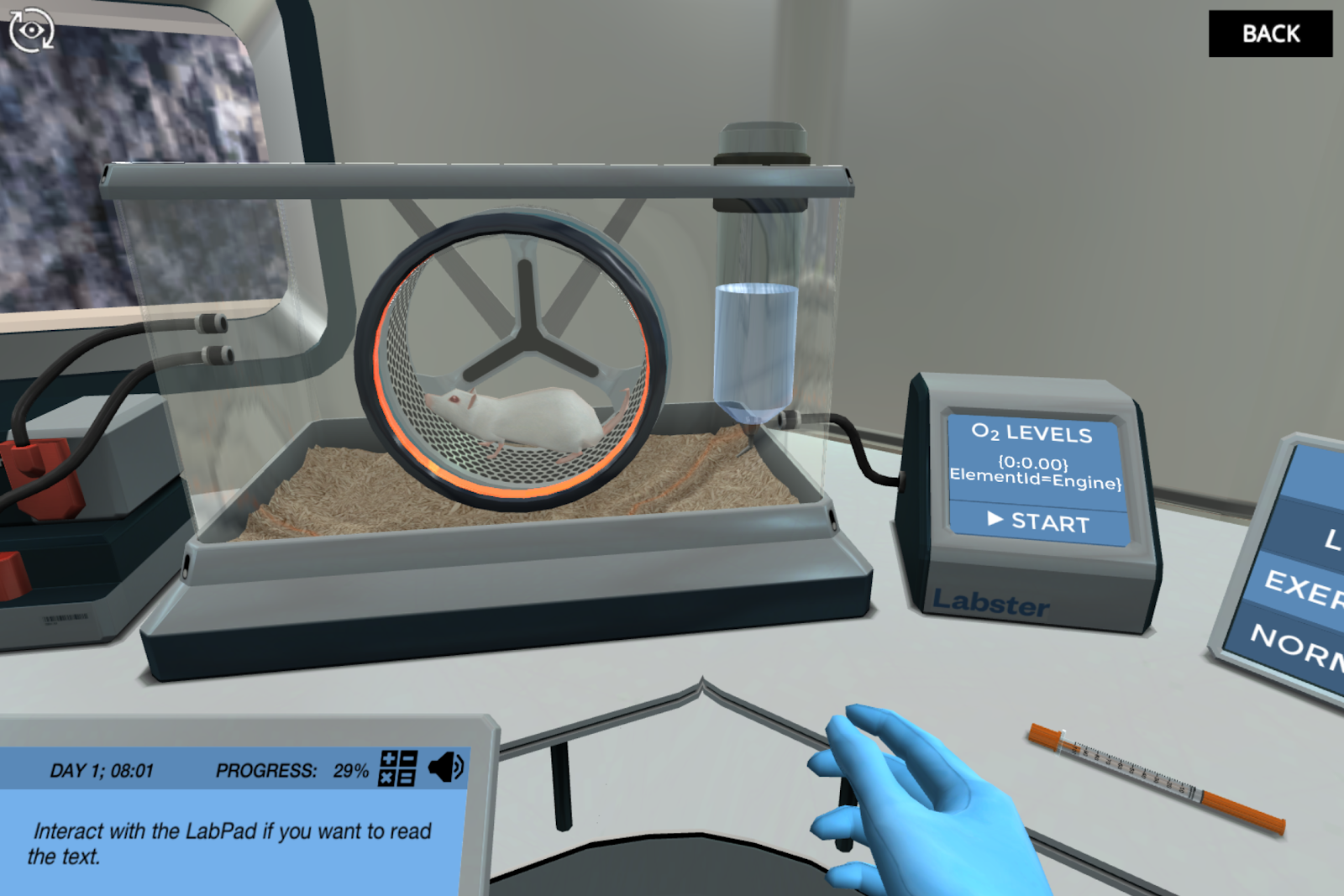
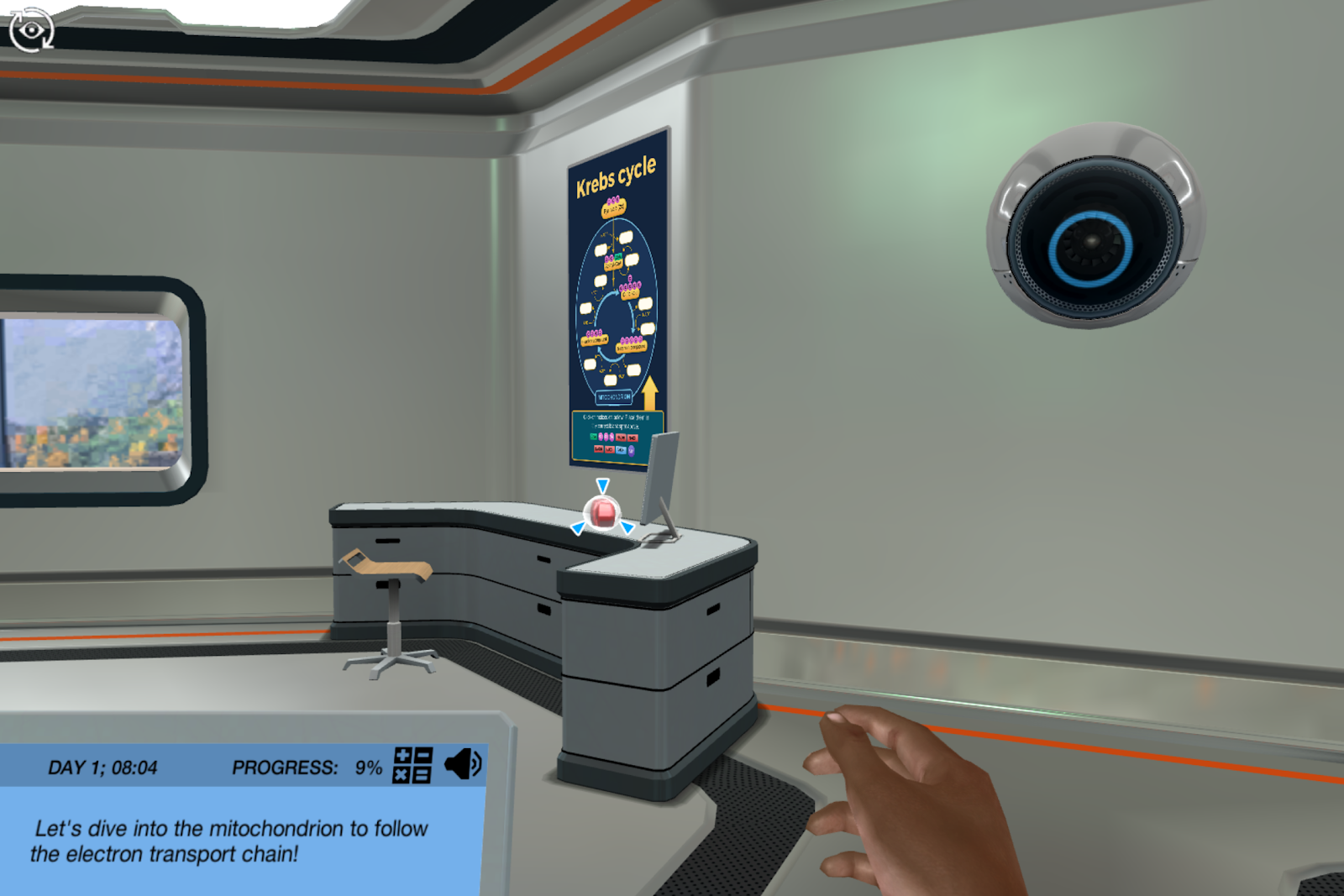
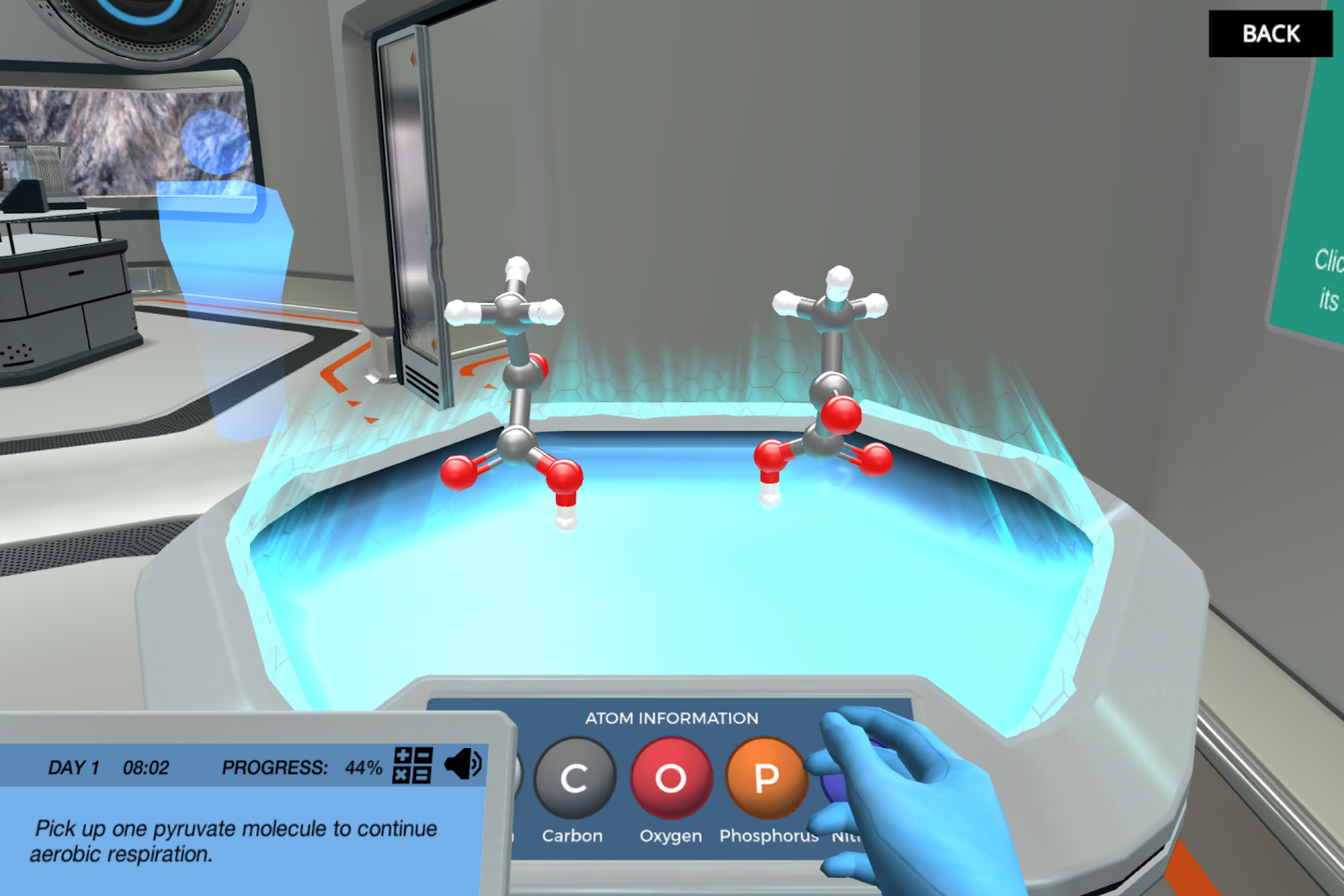
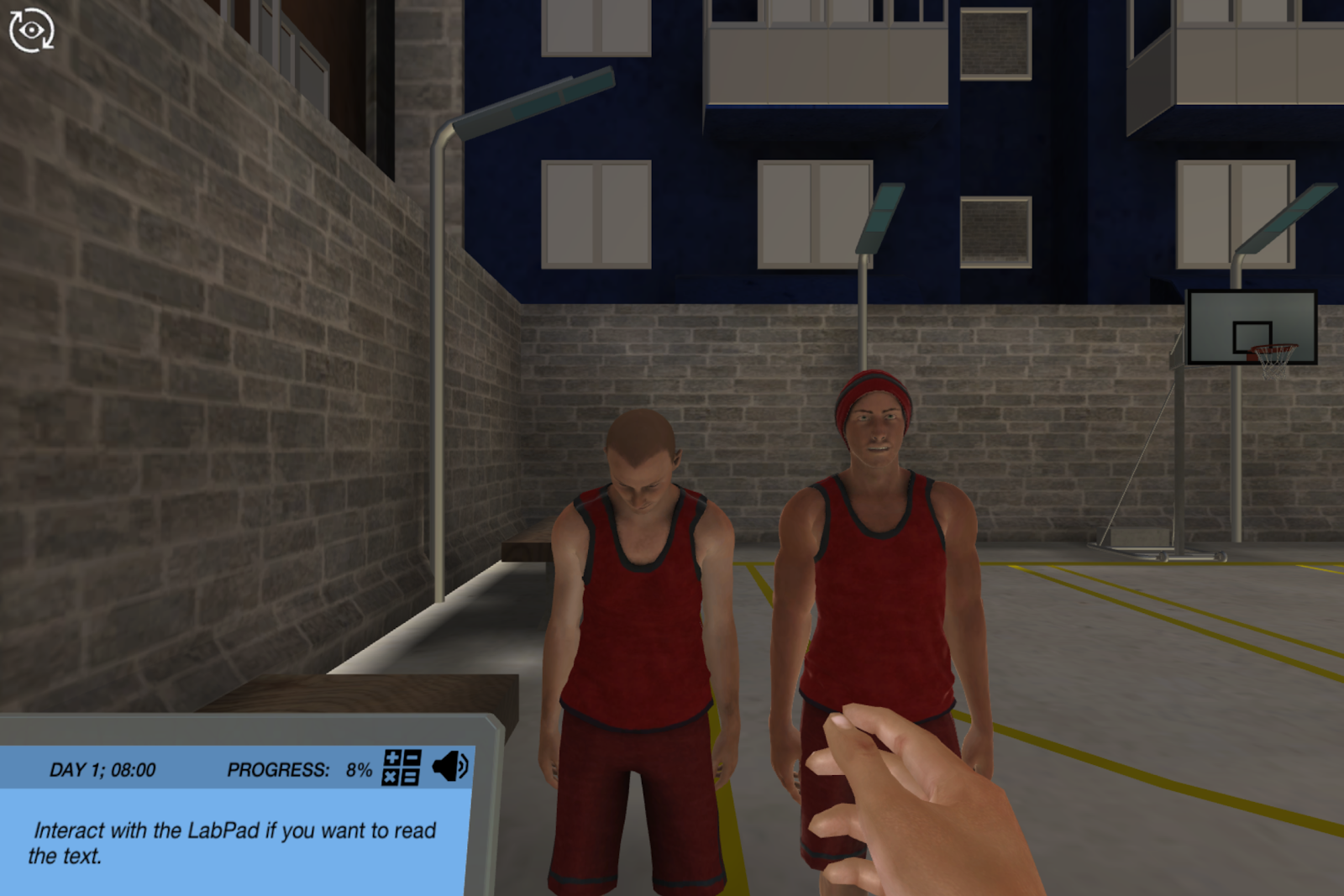
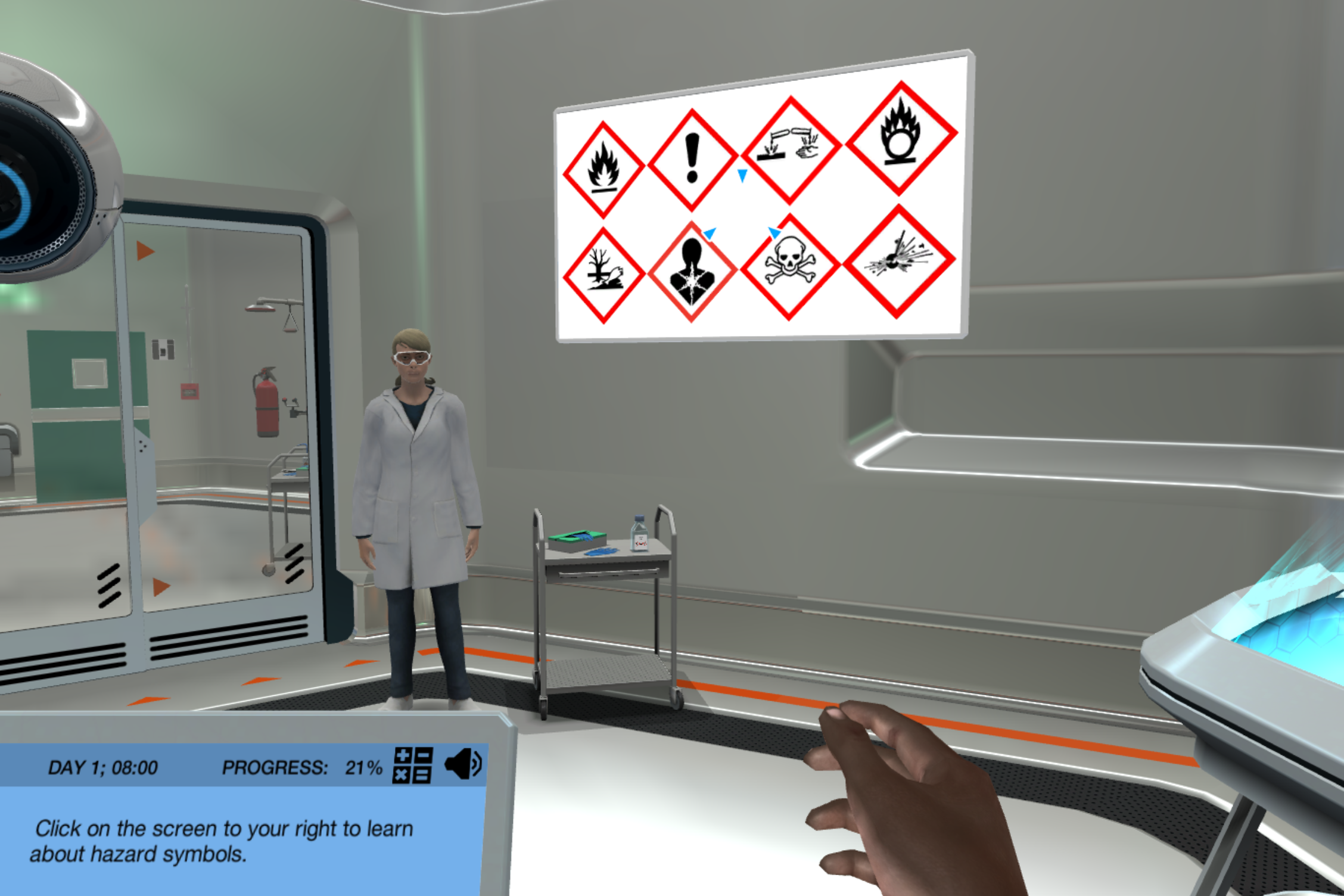
.png)
.png)
.png)
